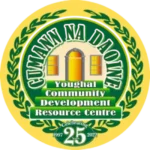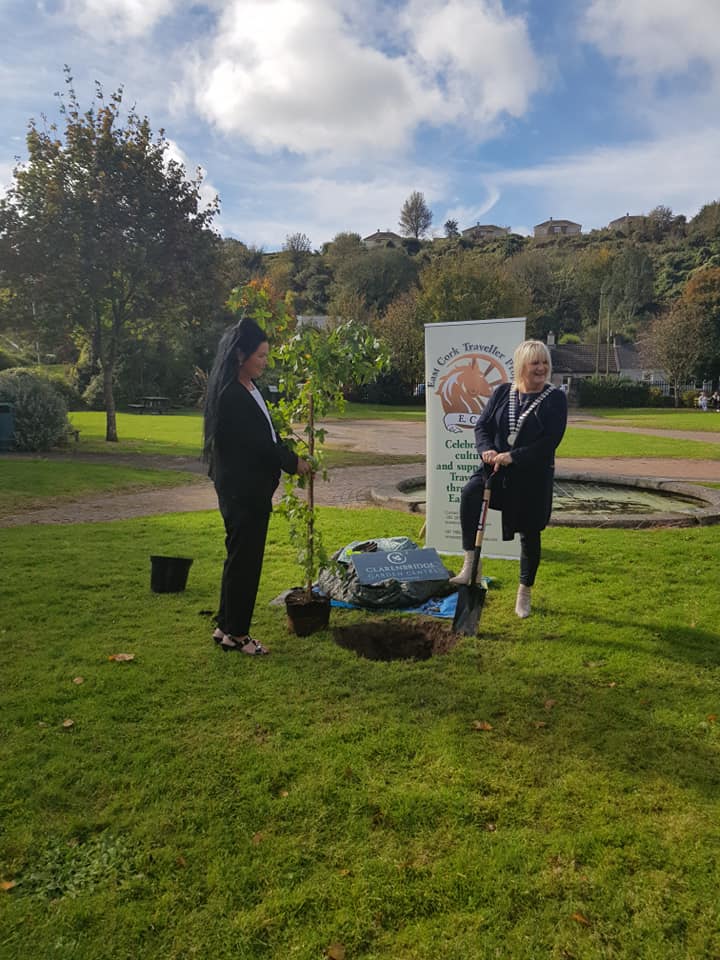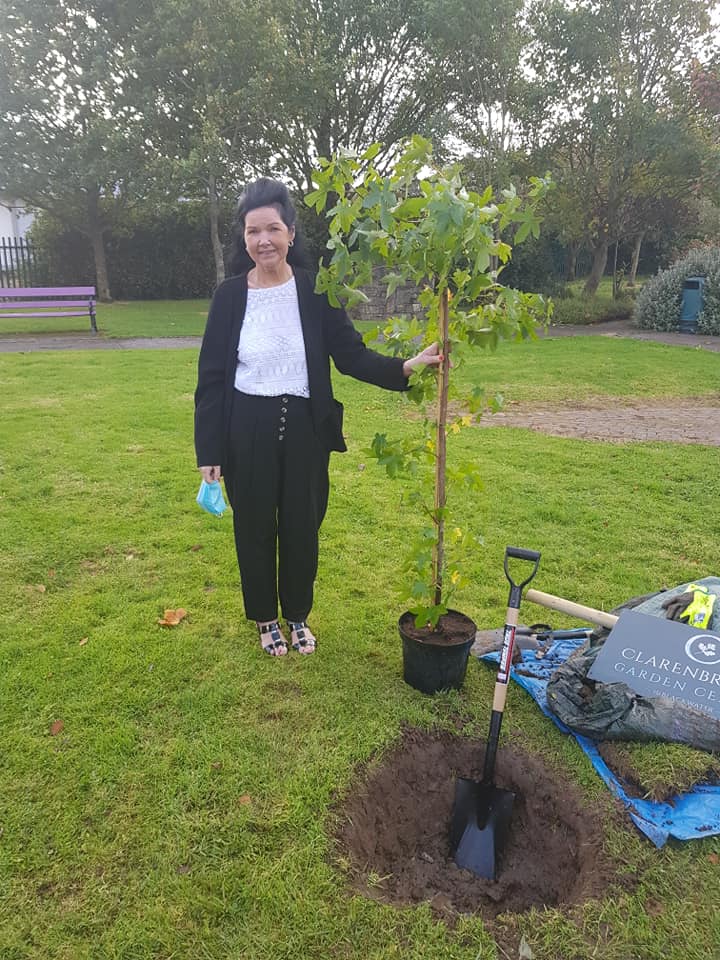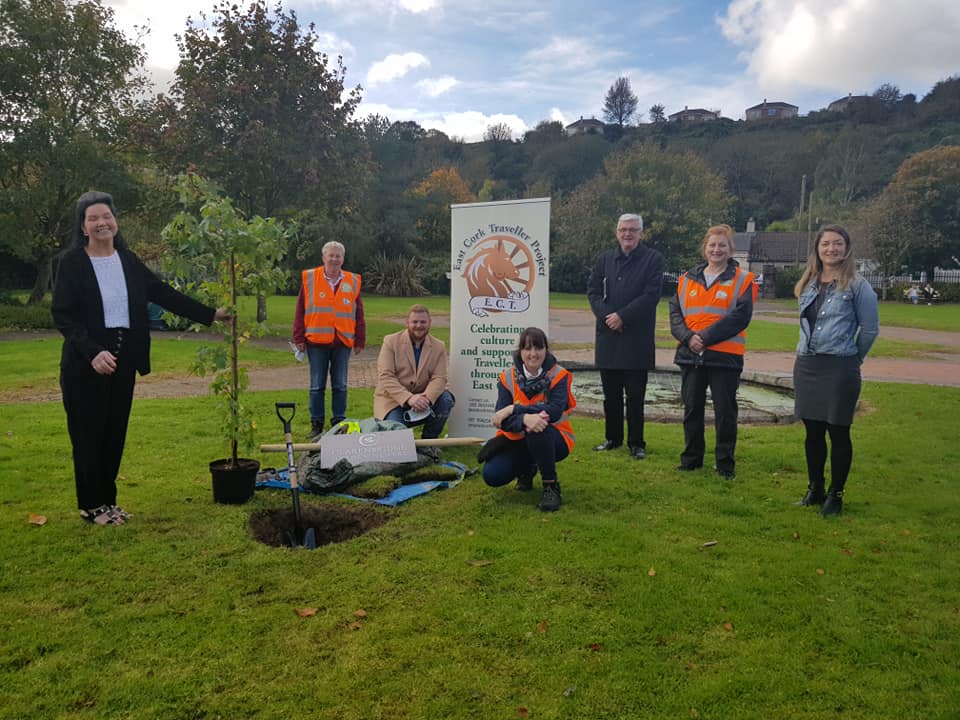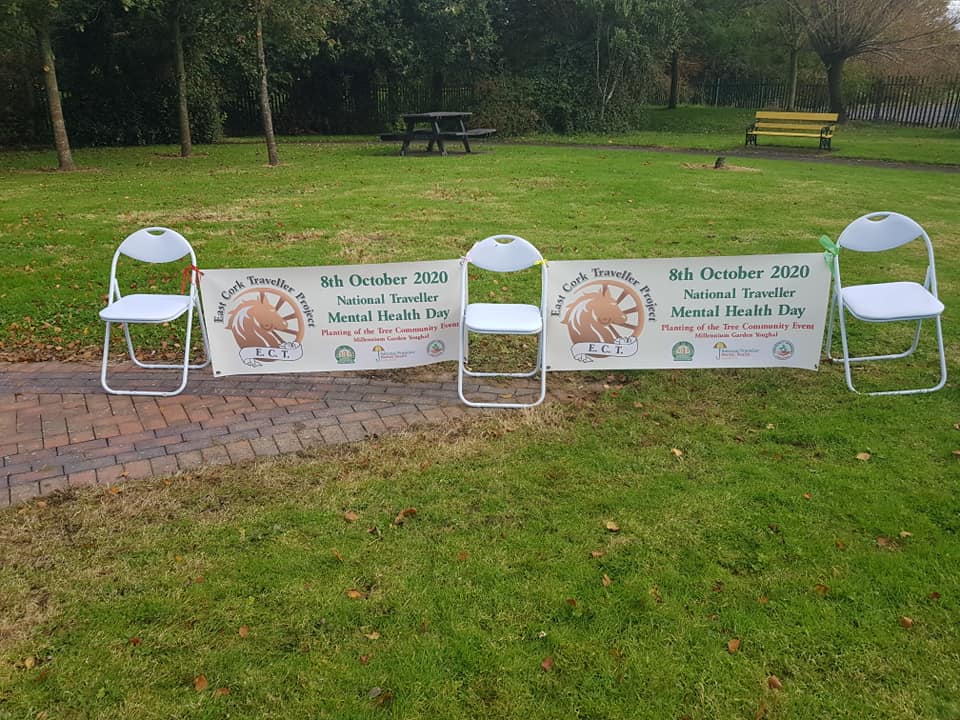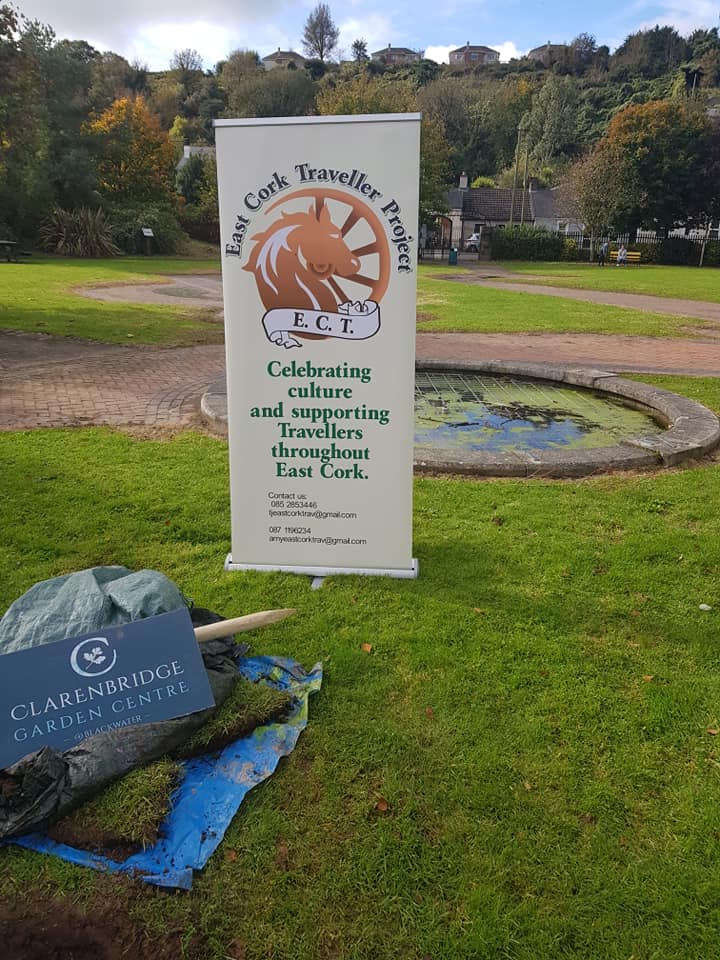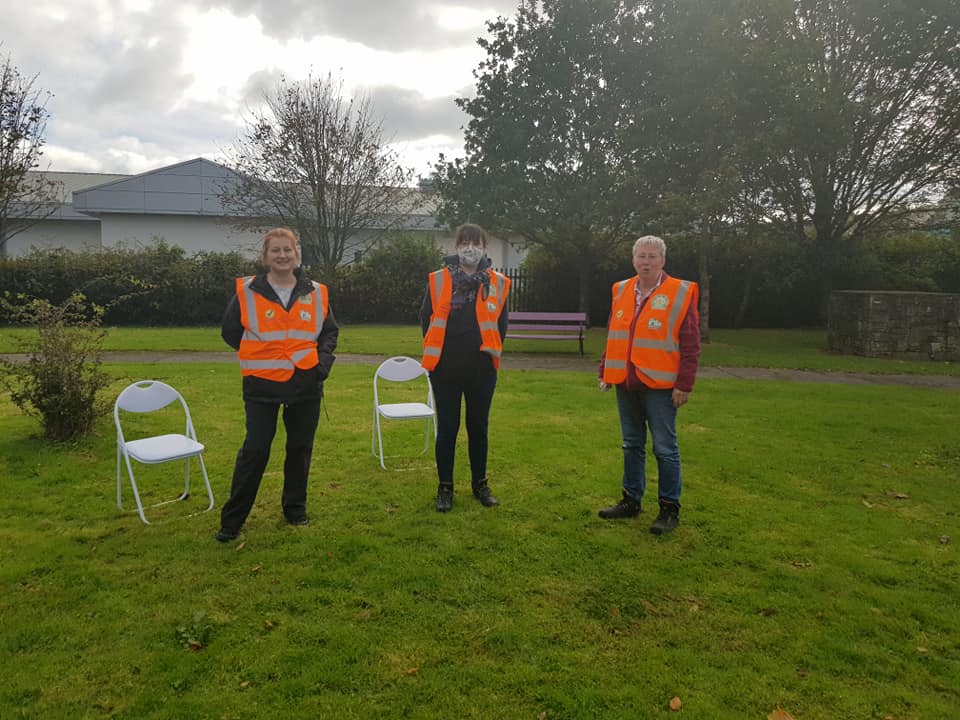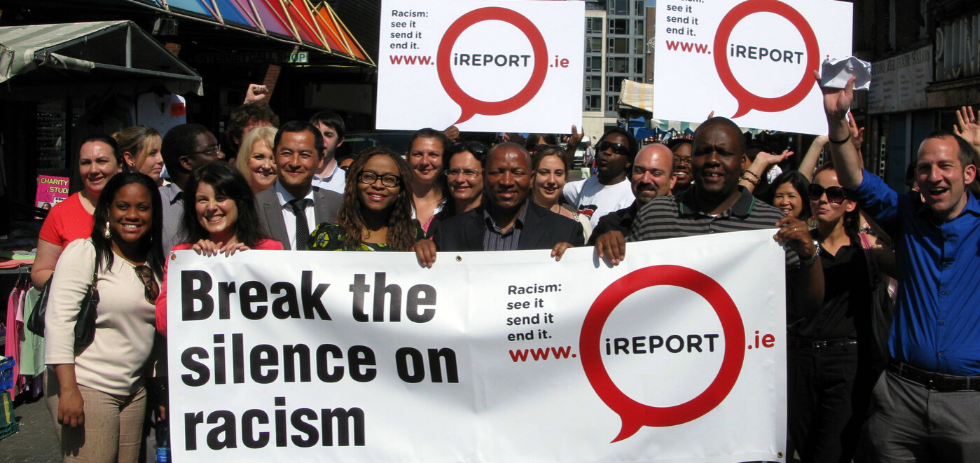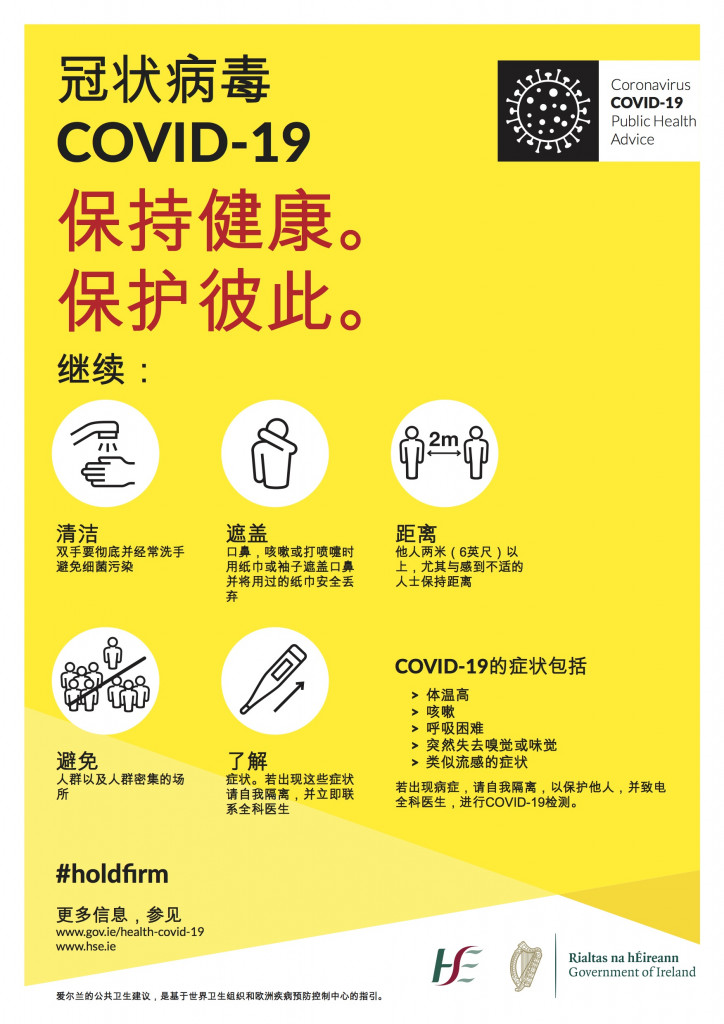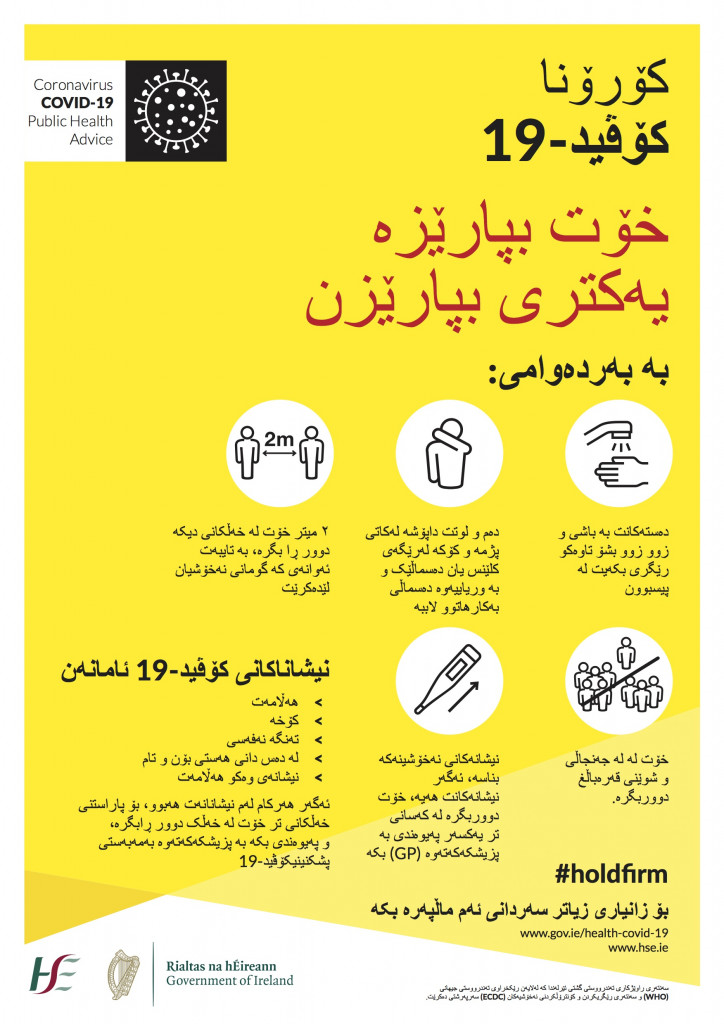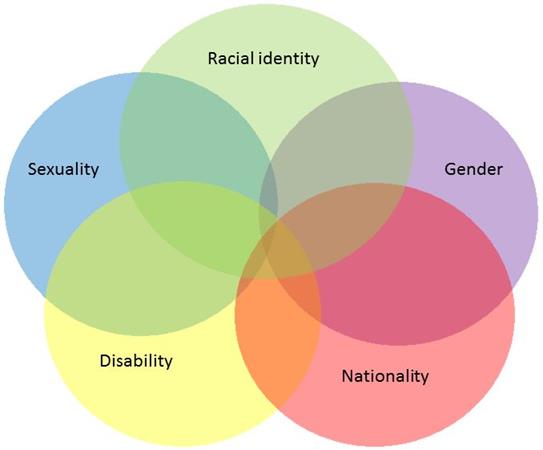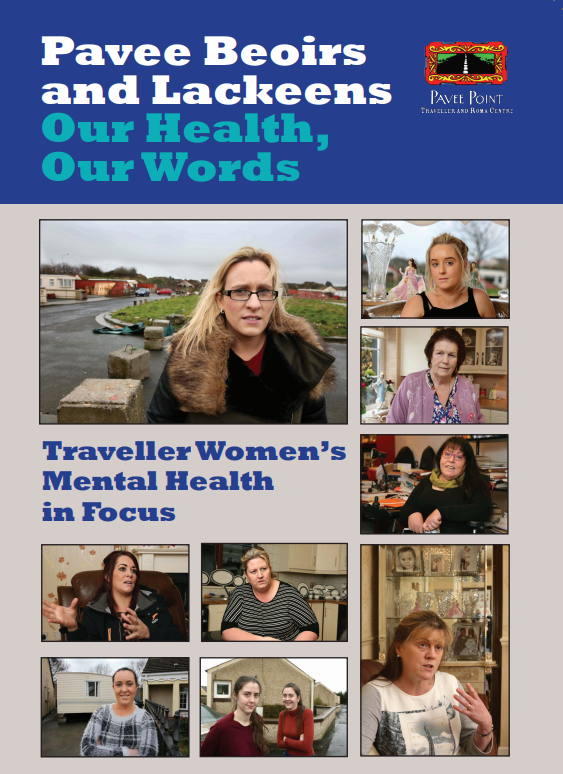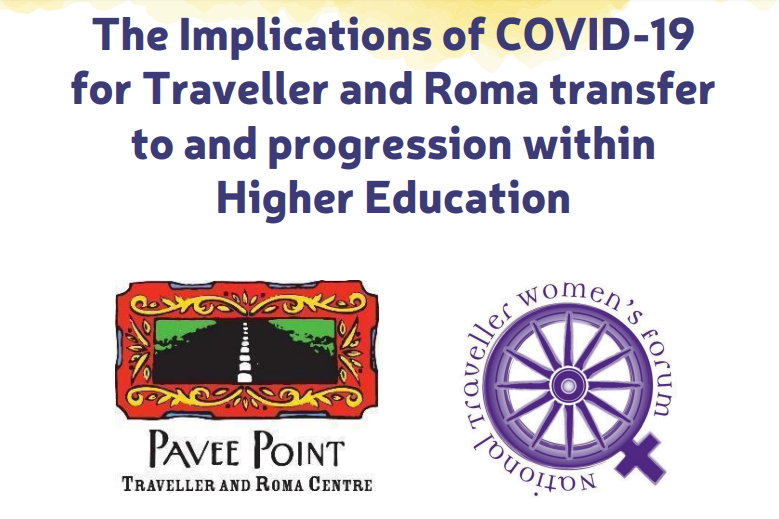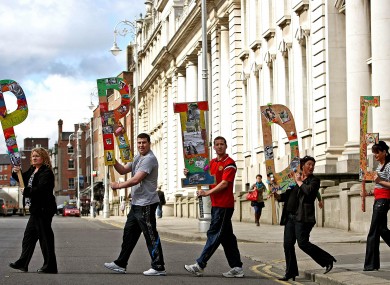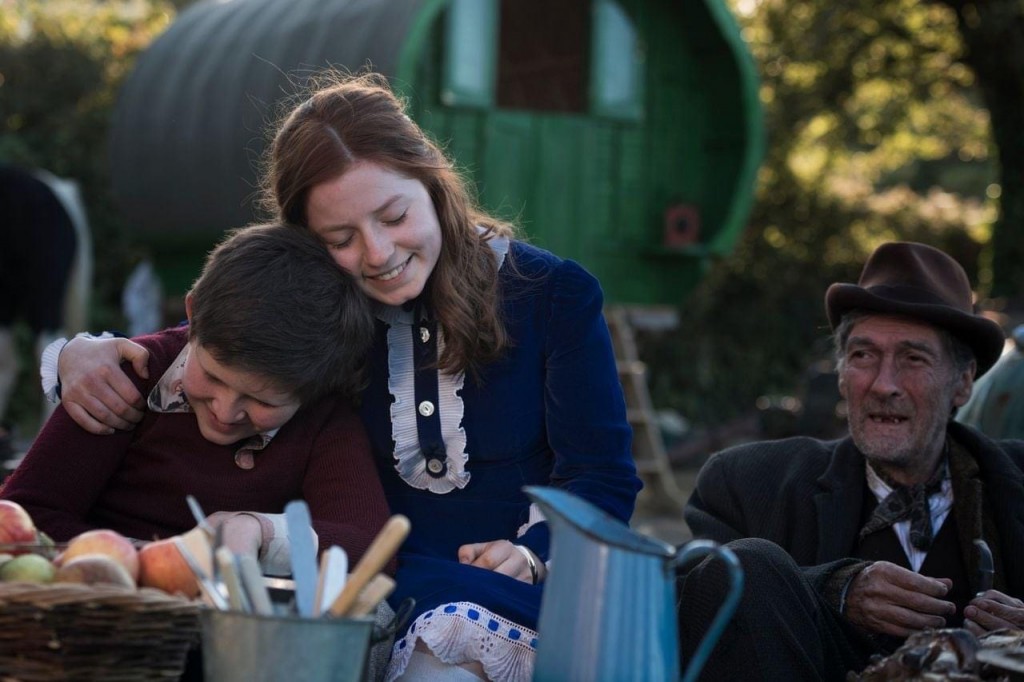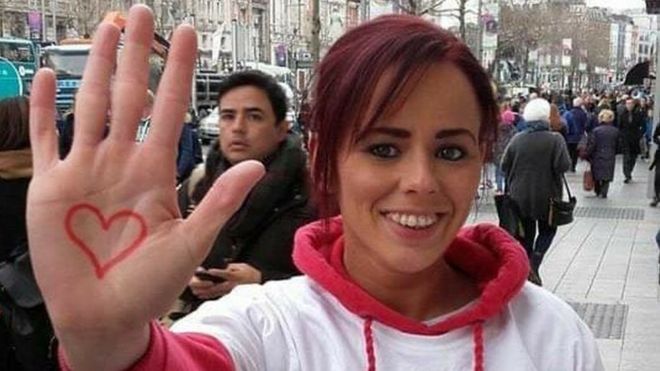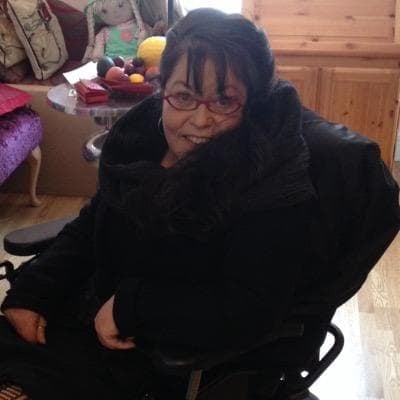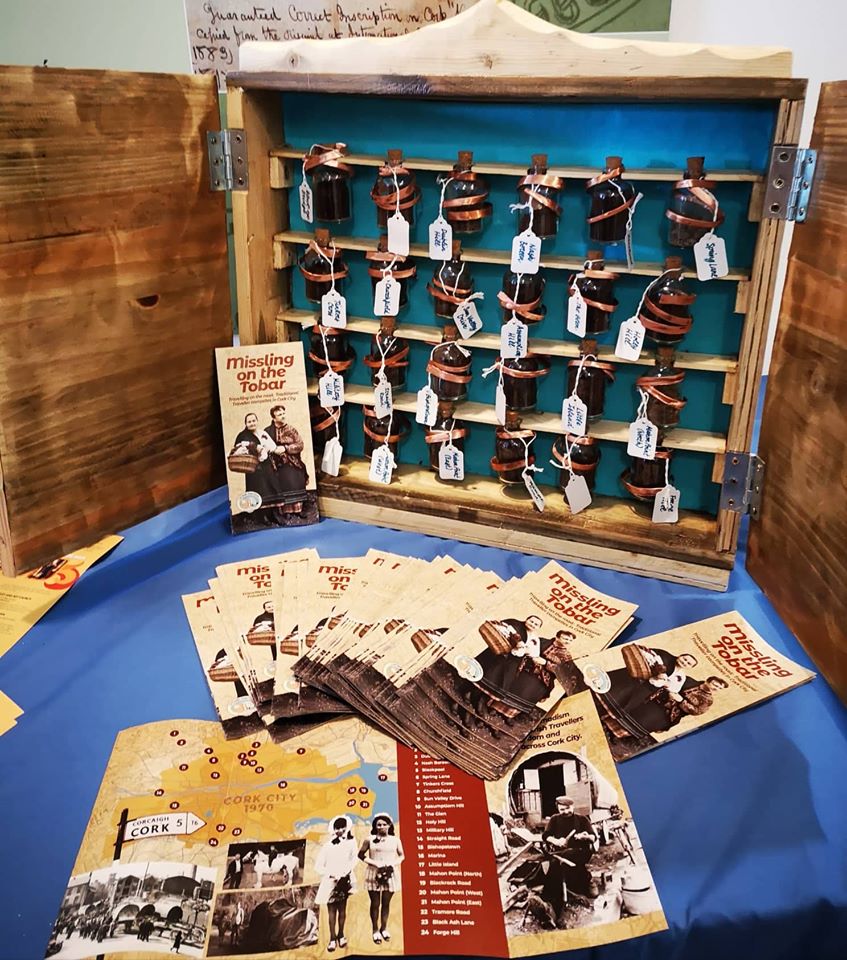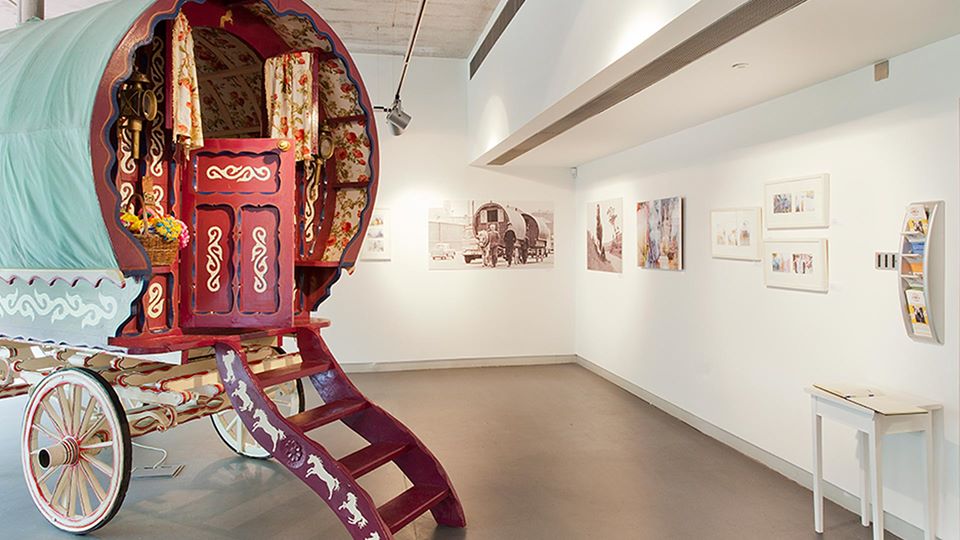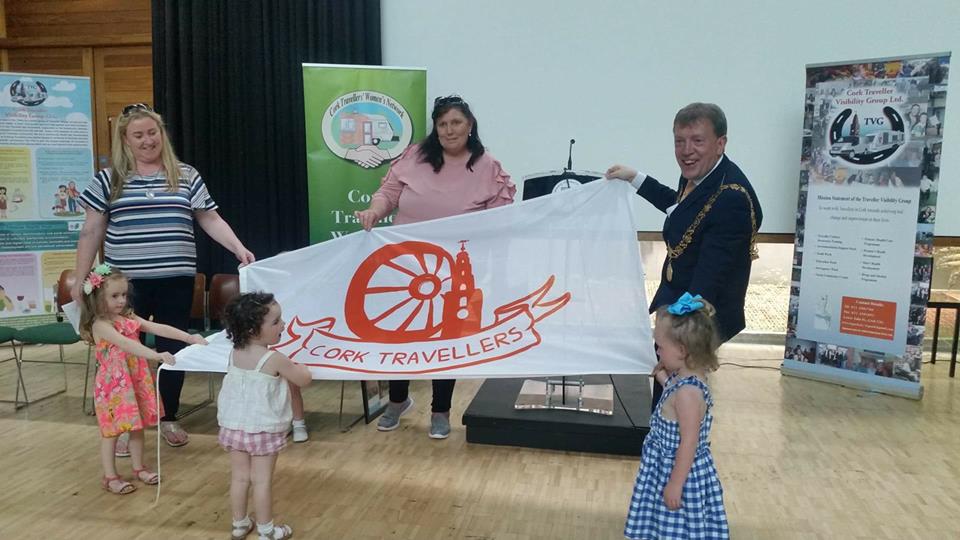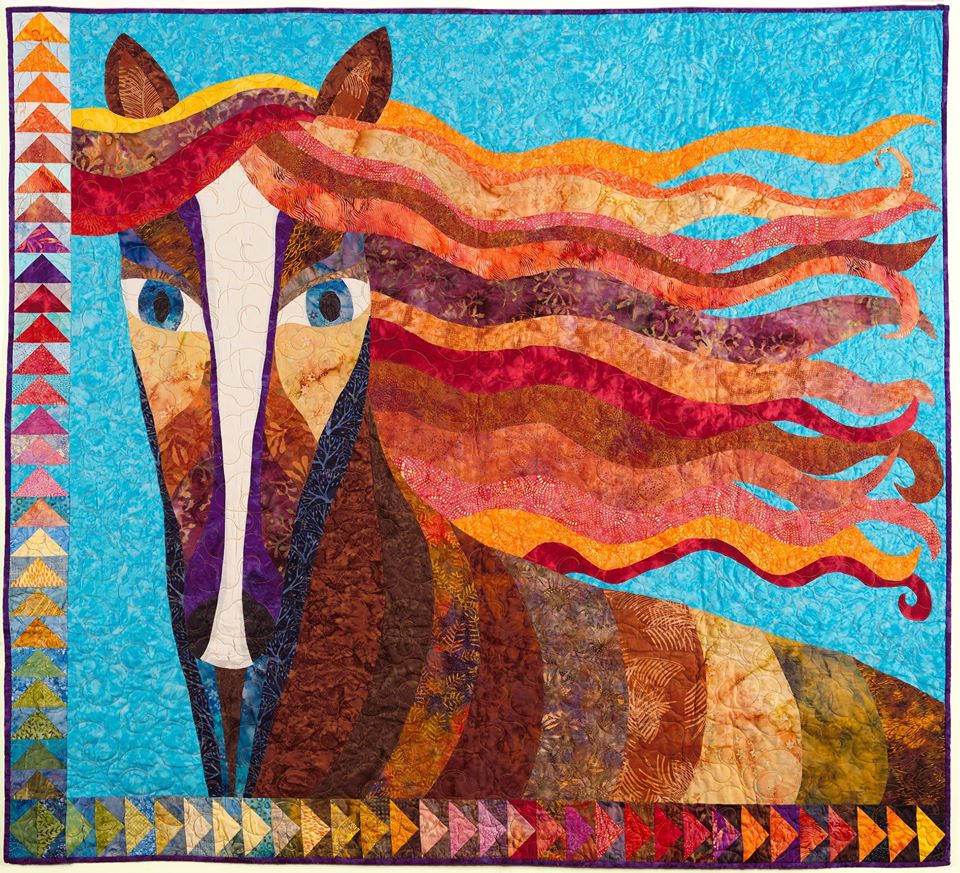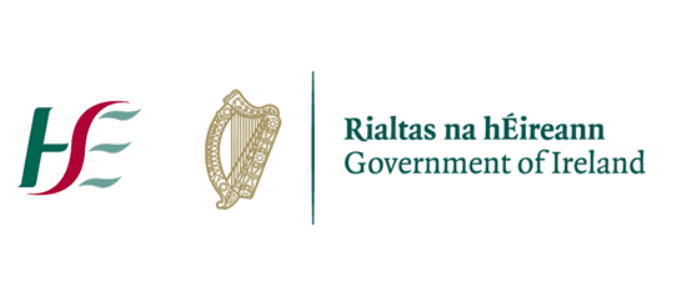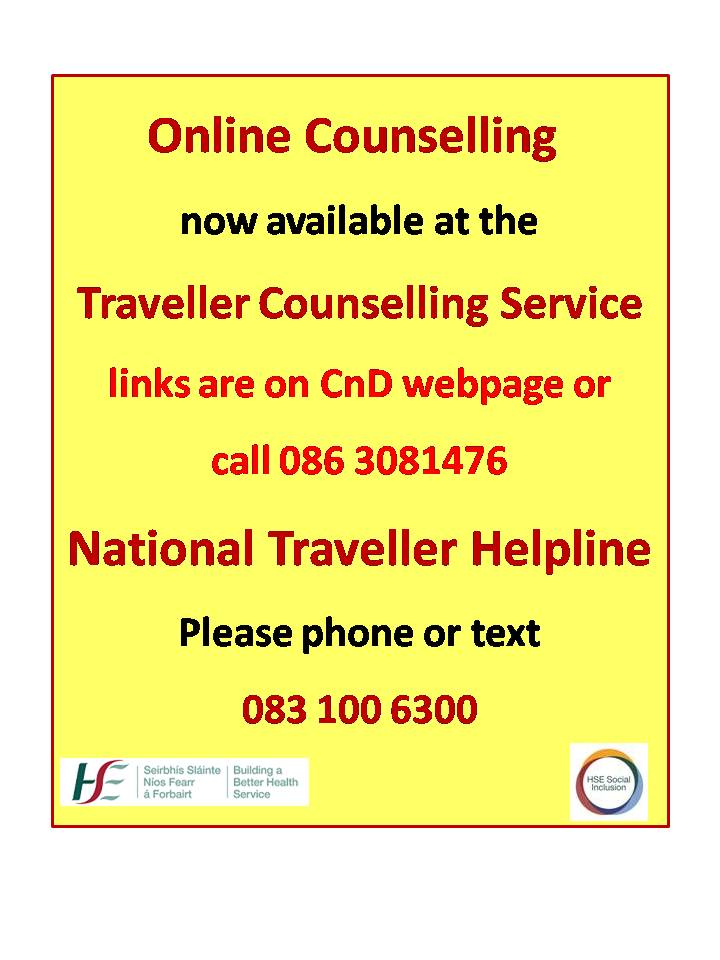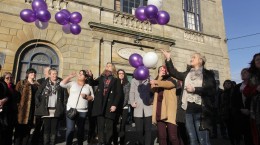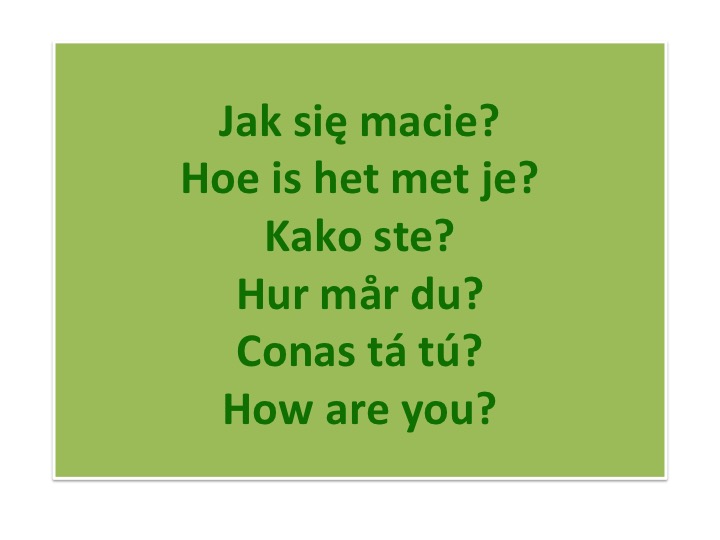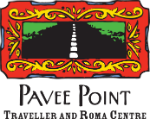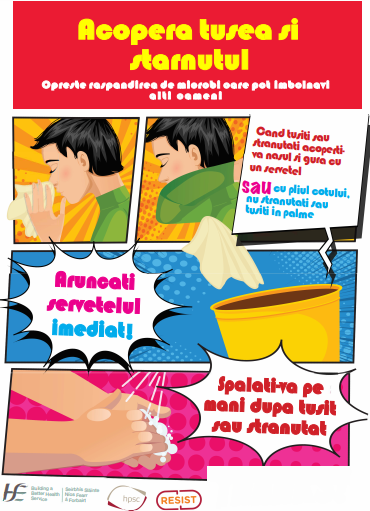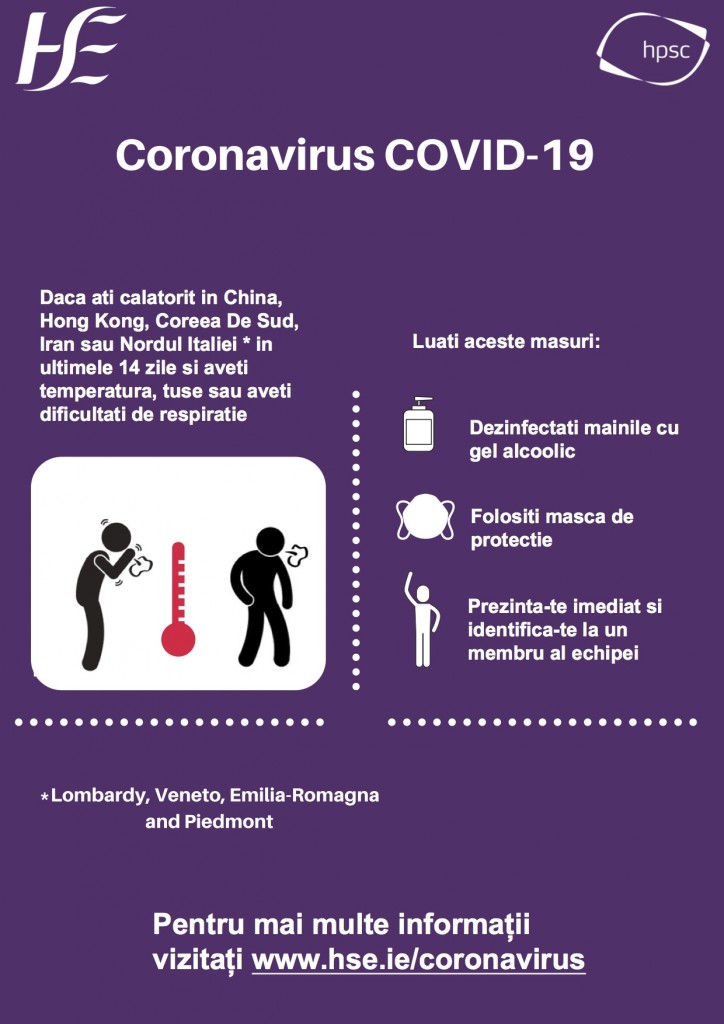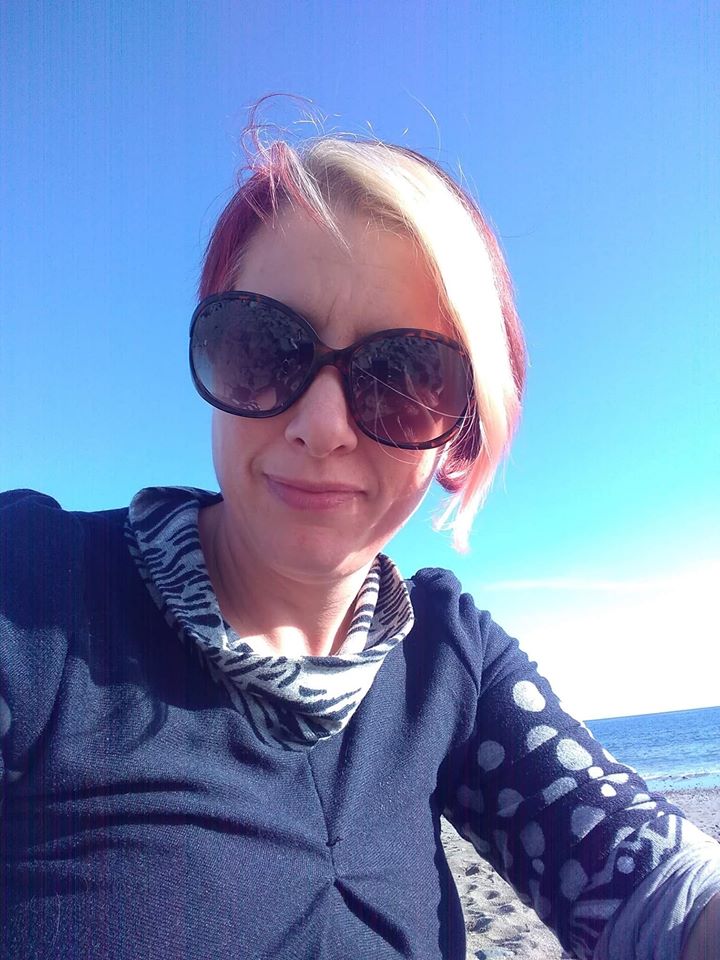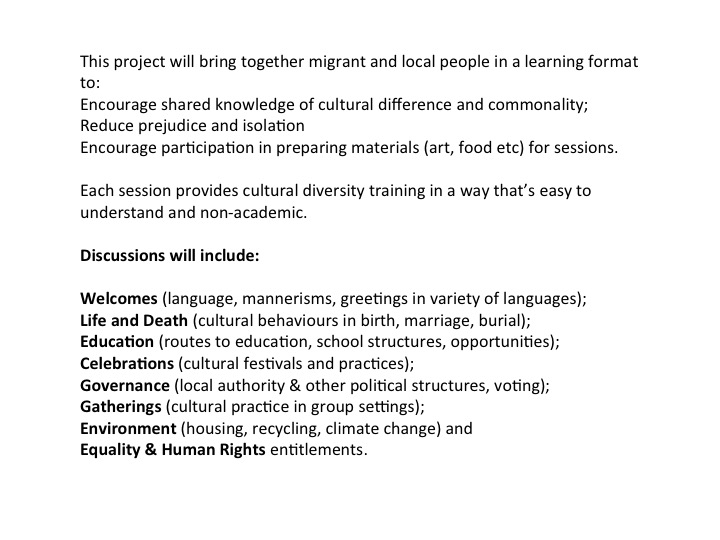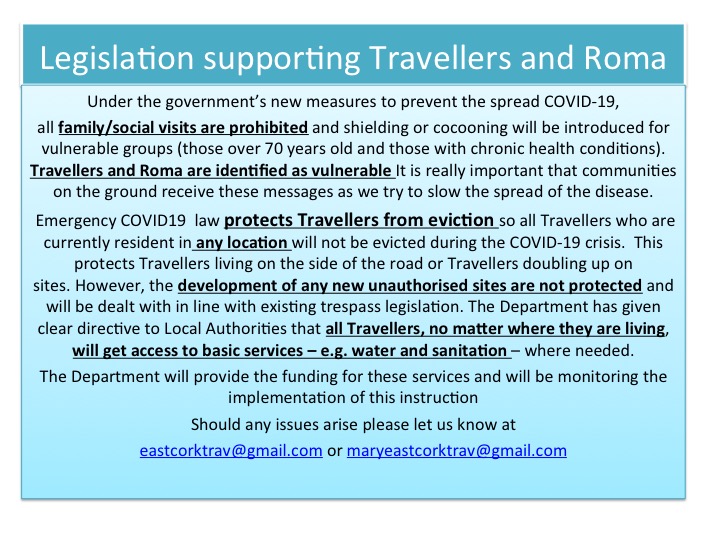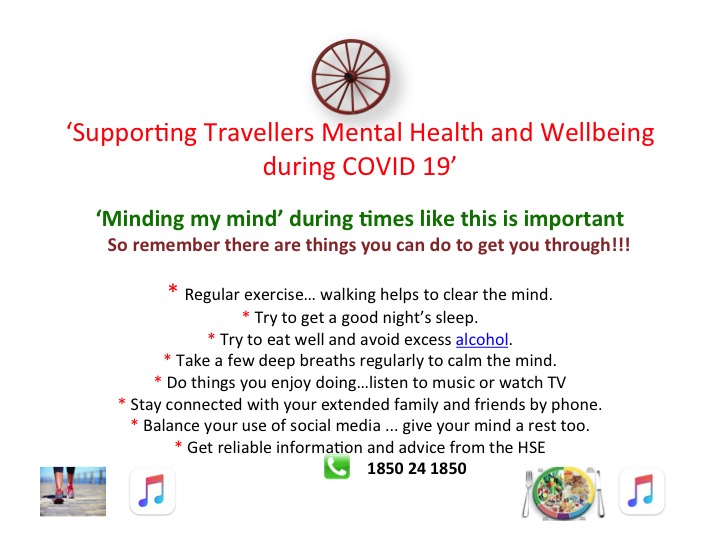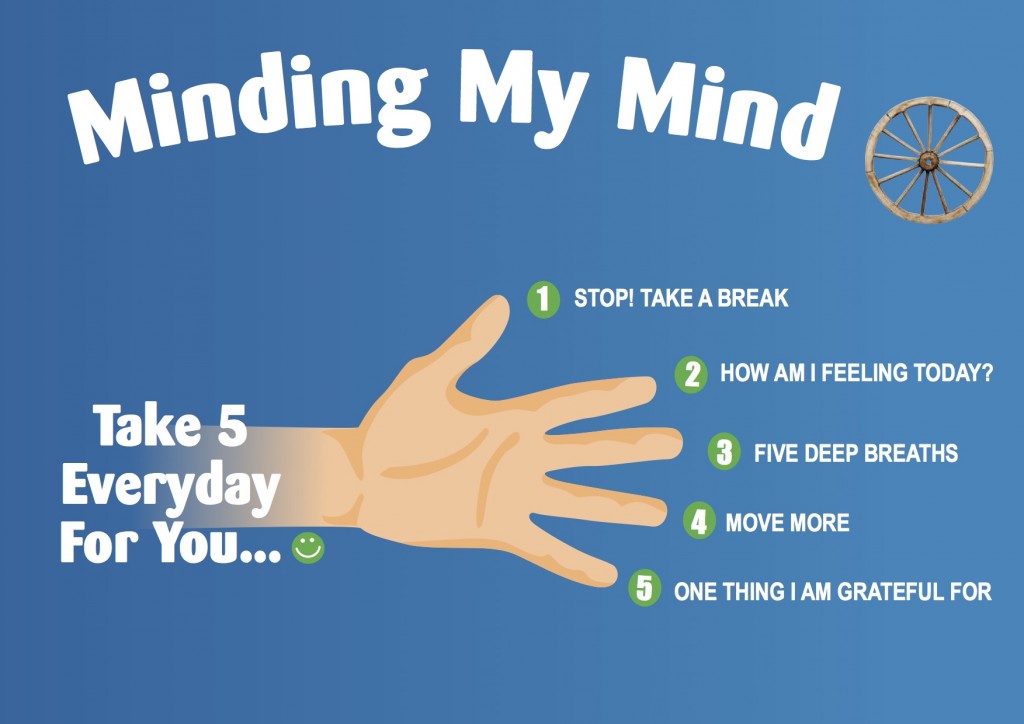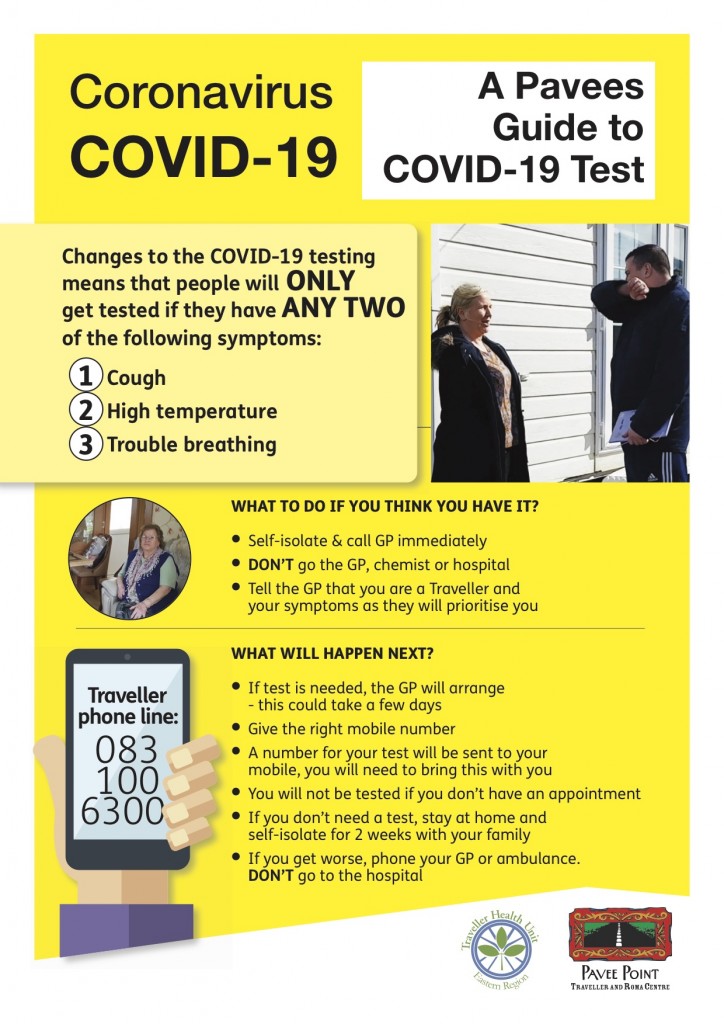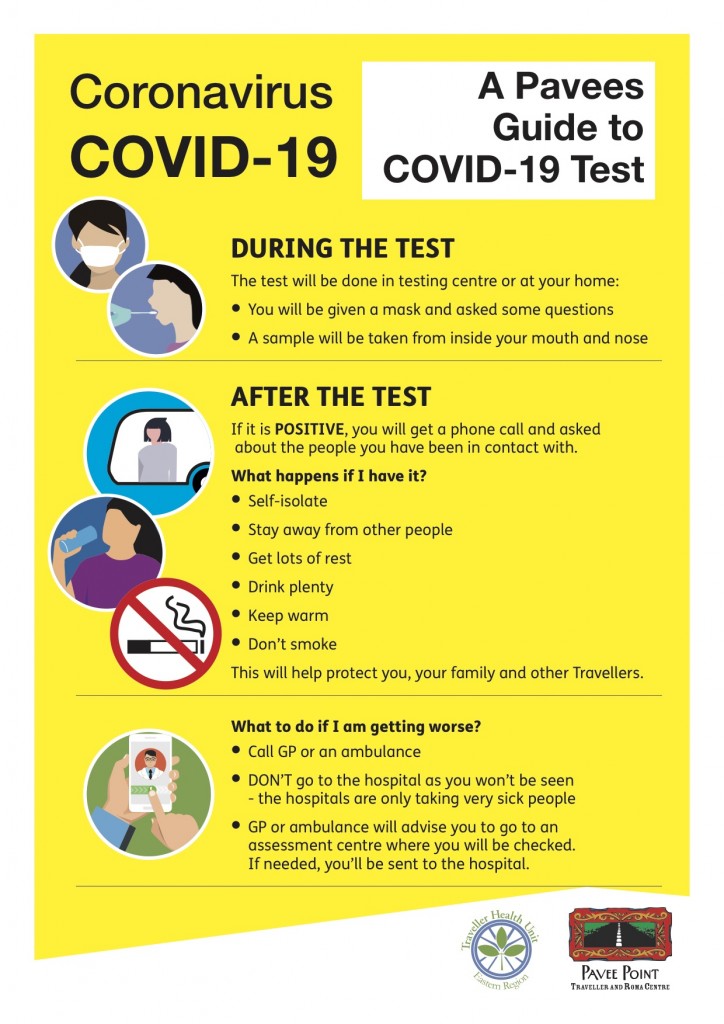Traveller Tree of Life planted in Youghal
Hear Project Coordinator TJ Hogan’s speech here: https://www.facebook.com/EastCorkTravellers/videos/962467077608897/
**************************
Last week on local radio CRY 104fm, East Cork Traveller Project Coordinator TJ Hogan was live in air speaking about ECTP’s event this coming Thursday with the planting of the Tree of Life in the Millennium Garden, Youghal.
The tree of life is a symbol of hope and strength. It’s roots are deep in the past, its trunk is our community, its branches reach out to heaven. The tradition of a Tree of Life has its roots in several faiths and cultures around the world.
The power of nature and the focus on a mystical tree as a teaching tool is something many civilisations share. The Apple tree is one of the most sacred trees and symbolises good health and future happiness.
East Cork Travellers are planting this tree on the first National Traveller Mental Health Day, October 8th 2020. It symbolises our project putting down roots within our community and supporting Travellers across East Cork.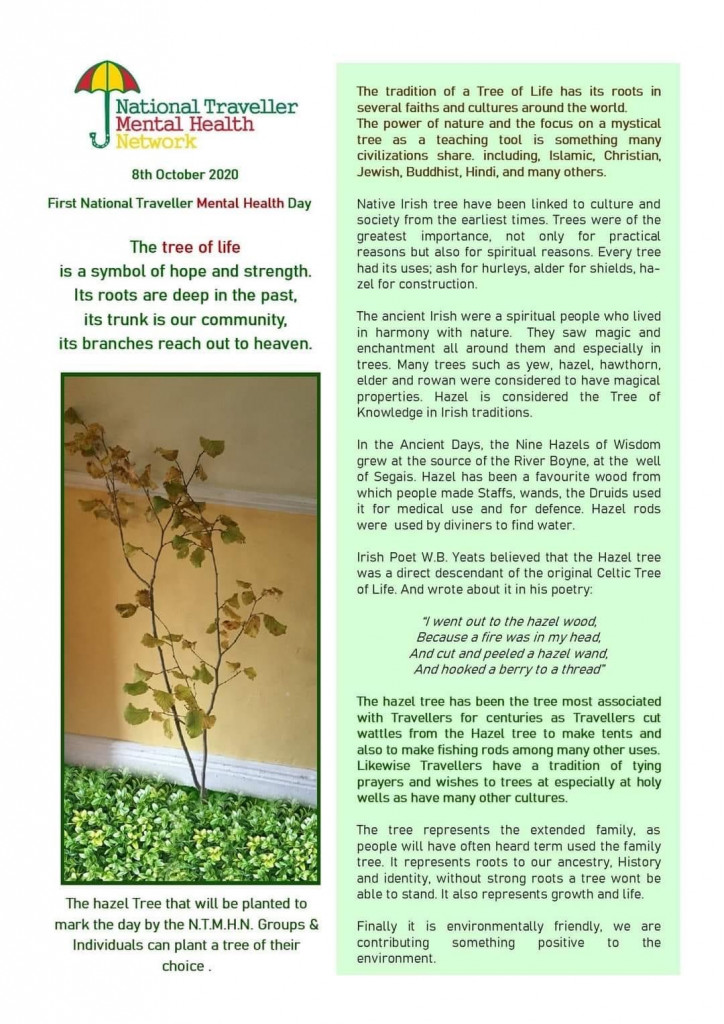
Cork Traveller Visibility Group (TVG)
TVG is a Traveller led Cork based organisation which brings the settled community and Travellers together in order to facilitate community development work for the Traveller community.
021 4503786 / tvgcork@gmail.com / 25 Lower John St, Cork
Some facts and myth busting:
Travellers are: “… a small indigenous minority group that has been part of Irish society for centuries. They have a value system, language, customs and traditions, which make them an identifiable group both to themselves and to others. Their distinctive lifestyle and culture, based on a nomadic tradition, sets them apart from the general population.” (AITHS 2010: 9)
Facts about Travellers:
- Estimated total Traveller population is 40,129 on the island of Ireland
- 29,000 – 36,000 Travellers in ROI and they represent 1% of nations population
- Travellers fare poorly on every indicator used to measure socio-economic status: health, accommodation, education and employment
- Travellers experience high levels of racism and discrimination
- “[Travellers’} experience of low social status and exclusion, which can prevent them from participating in society as equals is often aggravated by hostility and misconceptions of people towards them”
(Helleiner 2000, AITHS 2010:9)
Myths and realities about Travellers:
- Travellers are not settled people pushed off their lands during various land clearances in the past few hundred years
- References to a group identified as similar to present day Travellers is sited as far back as the 5th Century BC – long before the Irish land clearances of Cromwell (1649 – 1652) or those caused by the Great Famine 1845 (Sources: Pavee Point, Gmelch & Gmelch, 1976)
- Travellers have their own culture – key features are: nomadism, family, the importance of extended family, economic activity and faith
- One cannot become a Traveller; one has to be born into the Traveller community
- Travellers have their own language; Cant, Gammon
- Travellers who have settled into housing are still Travellers
The site offers a range of health and social supports and you can see their annual reports and resources there too. The East Cork Traveller Project works closely with TVG and other Traveller supports in working towards social inclusion and equal delivery of services.
Traveller Culture & Traveller Counselling
The Traveller Counselling Service – see https://travellercounselling.ie/
was launched in February 2008, initially as a one year pilot project which since has developed into a community based counselling service for the Traveller community.
The service works from a culturally inclusive framework which respects Traveller culture, identity, values and norms and works from a perspective of culture centred counselling and psychotherapy.
We are a team of six accredited psychotherapists and a manager who is also a psychotherapist and supervisor.
The Traveller Counselling Service is an independent organisation with registered charitable status and has a board of directors which is made up of members of both the Traveller community and the majority community.
Because of the changed circumstances recently in reaction to the COVID 19 virus we are now offering an online counselling service. All you have to do is enter your name and phone number under the counsellor you wish to connect with and they will get back to you with an appointment. We are using encrypted end to end web technology to ensure confidentiality and security.
Click here to view our list of counsellors and to set up an appointment:
The Irish Traveller community has a long history, with its own traditions, language, practical skills, culture, arts and music, with distinctive patterns of living (e.g. nomadism, keeping of horses) and strong values built around families, care and extended families. One of the biggest influences on Traveller culture is the nomadic lifestyle, which was possibly the most distinctive feature of Traveller culture that differentiated between Traveller and “settled” lifestyles. Nomadic lifestyles serve three functions within the community; they are social, economic and cultural. Nomadism refers to a mind-set, not just to the act of travelling.
The situation of Travellers is a difficult one, with the Traveller community’s traditional way of life, nomadism and distinctive economy affected by rapid economic and social change. These difficulties are characterised by the following:-
- Poor living conditions; many in unauthorized sites and finding it difficult to obtain either sites or accommodation of reasonable quality in acceptable locations.
- Ill-health; evidenced in life expectancies which remain typically ten years less than the settled population.
- Limited educational achievement; a reflection of the lack of opportunities, with few Travellers progressing to second level (less than 3% completing) and only a handful individuals reaching third level.
- Unemployment; difficulties in obtaining employment, coupled with the erosion of the Traveller economy, which makes their labour market situation very difficult. It was estimated that at least 45% of Travellers have no meaningful work.
- Discrimination; Travellers constitute the largest single category of discrimination reported to the responsible agencies.
- Identity Issues; problems of identity arising from their minority status
Anti-Roma Racism is Spiralling During COVID-19 Pandemic
Margareta Matache and Jacqueline Bhabha, April 2020.
[This and many more interesting articles at the Health & Human Rights Journal website https://www.hhrjournal.org/2020/04/anti-roma-racism-is-spiraling-during-covid-19-pandemic/]
There is a new global community taking shape. Across the world, from the markets of Wuhan to the streets of New York, Rome, Rio, and Delhi, people are sharing the experience of facing the COVID-19 pandemic as a health, social, and economic threat. But there is a darker side to this collective danger—a license to unleash racism against stigmatised groups. We have seen this at national borders, as countries hurry to separate “them” from “us.” But we are also seeing this within countries—as the COVID virus compounds the virus of racial hatred via politician, policy-makers, journalists, or social media. The discriminatory treatment of Europe’s Roma minority is a brutal case in point.
On April 7, 2020, the European Union (EU) Agency for Fundamental Rights, the Organization for Security and Co-operation in Europe Office for Democratic Institutions and Human Rights, and the Council of Europe issued statements drawing attention to the disproportionate risks that Romani people face in relation to contracting COVID-19.[1] A few days earlier, Helena Dalli, the EU Commissioner for Equality called on EU Member States to implement urgent measures for Romani communities, because COVID-19 exacerbates their exposure to structural inequality. However, despite these requests and the clear mandates of international and European human rights treaties guaranteeing equality, non-discrimination, and dignity for all people, there is a frightening escalation of populist and racist voices intent on blaming the Roma community for this pandemic.
From Slovakia to Romania and Bulgaria, states have enacted disproportionate or militarized measures targeting Romani neighbourhoods or towns. Some of these measures are driven by a racist narrative that casts Roma as a collective health and safety threat. The Bulgarian government has imposed particular measures, including road blocks and police checkpoints, on several Romani neighbourhoods despite no evidence of COVID-19 positive test results there.[2] A Bulgarian Member of the European Parliament, Angel Dzhambazki, speculated that Romani “ghettos [could] turn out to be the real nests of contagion.”[3]
Early on in the Romanian conversations regarding COVID-19, the prefect of Timis, one of the largest counties in Romania, suggested that the infection of a school pupil had been caused not by virus spread within the classroom but by some “other environment” as the child “belonged to a Romani family.”[4] Non government organizations (NGOs) also drew attention to abuses at the local level, including police abuse or restrictions on Roma from entering cities, such as in Ponorâta, Romania. In North Macedonia, nine Romani musicians were singled out of a group of 200 and forced into quarantine, in spite of the Minister of Health’s announcement that the whole group was going to be quarantined.[5] The mayor of Kosice in Slovakia suggested Roma could pose a particular health risk because they are a “socially unadaptable people.”[6]
Some of these discriminatory pronouncements are harsh reminders of earlier European anti-Roma racist measures. In the centuries of Roma enslavement, enslaved nomadic Romani people were forbidden from entering the city of Bucharest during outbreaks of the plague.[7] Similarly, as the National Centre for Roma Culture noted recently, Romanian fears that Roma would contaminate the “Romanian race” with typhus led to anti-Roma measures in the 1940s.[8] These sentiments are finding favor again today. They must not. Instead, states must act now to protect the rights, including health rights, of all people within their jurisdictions, including their Roma populations.
It is not just politicians who have been uttering racist falsehoods. Across Europe, a range of media outlets have been broadcasting similar narratives blaming Roma, especially those recently returning from other countries, for spreading COVID-19. The Romanian media is one of the worst examples. An unashamedly crude racist narrative has exploded across the country, exploiting the relatively large number of confirmed cases and deaths in Tandarei, a small Romanian town, to sow fear and hatred. The media do not appear to have inquired if, and if so why, young Roma without underlying conditions are over-represented among the dead. A national newspaper, taking another equally unfounded approach, misinformed the public and risked Roma lives by implying that Romani people are immune to the virus—a dangerous idea rooted in the racist assumption of inborn Roma genetic resistance to disease.[9] Local and national newspapers have raged a racist, hateful, and life-threatening campaign of anti-Roma propaganda.[10] As a predictable corollary to this outburst of racist hate speech, countless anti-Roma dehumanizing, degrading, and deeply offensive fake posts and “news” on Facebook remain unaddressed by that platform.
Like other racialized and marginalized communities, Roma need humane and protective measures. These must recognize their structural inequalities and be tailored to the specificities of their racialized vulnerability—access to water, community facilities, health care assistance, direct cash payments, and income supplements to counterbalance inevitable drop offs in daily wage labor. With 80% of European Union’s Roma living below the poverty line, 30% with no running water, and 46% without an indoor toilet or shower, access to non-discriminatory and high quality care is critical for their health and well-being.[11] In the Western Balkans, and elsewhere, many impoverished Roma are forced through discrimination and structural injustices into the informal economy and do not have the luxury of work benefits or paid unemployment to stay at home. In Bosnia and Herzegovina alone, only 11% Roma are employed in the formal economy.[12] If Roma human rights entitlements had been fulfilled rather than willfully neglected, these structural inequalities would have decreased long before this current pandemic.
Forced evictions and forced migration in search of survival both result in high levels of homelessness for many Romani people in many EU member states, including Romania, Italy, Sweden, and Denmark. According to the Institute of Global Homelessness, across Europe “Roma populations have been shown to be more at-risk for homelessness than non-Roma groups.”[13] They do not have the option of sheltering in place. Because of the acute risks presented by homelessness in a time of pandemic spread, both prudence and humanity require that evictions be stopped, and appropriate shelter provided. This is the lesson to be learnt from forward-looking municipalities across the globe, from Boston to Berlin, municipalities that are rightly concerned with their homeless communities and the wider public within which they live.[14] A rights-based approach to the social and economic impact of COVID-19 also necessitates direct cash payments and stimulus packages for those most in need, regardless of their ethnicity.
Discriminating against Romani people, already marginalized and forced to live and work in toxic and overcrowded conditions, is a grave human rights violation that threatens the public health of all members of the community, Roma and non Roma.[15] To prevent the spread of COVID-19 in all communities, government responses must be informed by human rights principles that protect the most vulnerable, both in the short term and thereafter. An essential aspect of this approach is to seriously and vigorously tackle the structural, racial, and social inequalities that continue to expose Romani people to greater risks of poor health, in times of emergency as much as outside of them.[16]
COVID-19 provides the world with a chance to recognize our joint humanity and interdependence. We call on policy makers, opinion leaders, and public spokespeople to use this time of collective emergency to stamp out racist and inflammatory rhetoric, to promote human rights, justice, equality, and dignity and, as a result, protect global public health.
Margareta Matache, PhD, Director of the Roma program at the FXB Center for Health and Human Rights, Harvard University.
Jacqueline Bhabha, JD, Director of Research, at the FXB Center for Health and Human Rights, Harvard University.
References
[1] OSCE, Persistent Roma Inequality Increases COVID-19 Risk, Human Rights Heads Say, April 7, 2020. Available at https://www.osce.org/odihr/449668?fbclid=IwAR1lSy5oHshRKVhvR8VDf2wz9npwp1ZTTM0v1-3cZAqE6Do9jQEpoCCc5IA; Council of Europe, Statement by Dunja Mijatović,Council of Europe Commissioner for Human Rights, Governments must ensure equal protection and care for Roma and Travellers during the COVID-19 crisis, April 7, 2020. Available at https://www.coe.int/en/web/commissioner/-/governments-must-ensure-equal-protection-and-care-for-roma-and-travellers-during-the-covid-19-crisis.
[2] Bulgaria’s Roma Say Some Coronavirus Measures Are Discriminatory, March 24, 2020, The New York Times. Available at https://www.nytimes.com/reuters/2020/03/24/world/europe/24reuters-health-coronavirus-bulgaria-roma.html.
[3] Ibid.
[4] Bobi Neascu, Prefectul de Timiş, despre eleva cu coronavirus: „Putea să fie pozitivă și din alt mediu. Înțeleg că este tot dintr-o familie de romi (The Prefect of Timiș, about a female school pupil with coronavirus: “She could be positive from another environment. I understanding that she belongs to a Roma family”), March 9, 2020, Libertarea. Available at https://www.libertatea.ro/stiri/prefectul-de-timis-despre-eleva-cu-coronavirus-putea-sa-fie-pozitiva-si-din-alt-mediu-inteleg-ca-este-tot-dintr-o-familie-de-romi-2906704?fbclid=IwAR0o438oYL2v6JbLtI2_8dpIIUcb5t7_Q3C9PM4adVEwYy2jkSVV1c7OhTs.
[5] Jonathan Lee, Roma Quarantined at the Border to North Macedonia, March 19, 2020, European Roma Rights Center. Available at http://www.errc.org/news/roma-quarantined-at-the-border-to-north-macedonia?fbclid=IwAR2p9Xyb8AhYOHWZvFVFLfXUOn3Pi0n7G-GeeNBSP44WV4vnhvT0I2t93KI.
[6] Bernard Rorke, Inequality, anti-Roma racism, and the coronavirus, March 19, 2020, EU Observer, Available at https://euobserver.com/coronavirus/147759.
[7] Viorel Achim, The Roma in Romanian History, CEU Pres, 1998.
[8] Romanian Government, The Deaprtment of Interethnic Relations, Romania, o Europa in Miniatura(Romania, a Europe in miniature), 2013. Available at http://www.dri.gov.ro/wp-content/uploads/2013/12/Romania-o-Europa-in-miniatura.pdf.
[9] Anticorpii țigănești au învins „Eurovirusul” în cartierul „La Capace” din Jilava (Gypsy anti-bodies defeated the “Eurovirus” in “La Capace” neighborhood of Jilava)
March 20, 2020, Evenimentul Zilei. Available at https://evz.ro/anticorpii-tiganesti-au-invins-eurovirusul-in-cartierul-la-capace-din-jilava.html?fbclid=IwAR0DJK9oztGdSpEvyV_tZujGVEwxYk-k9IqKIctYArAk_1hojSb7dkknRd4.
[10] Băi, putorilor, care n-ați plătit un leu impozit și v-ați întors să ne furați iar și să ne omorâți! Până când să vă mai suportăm nesimțirea, carantina, spitalizarea, figurile?( You, lazy people who didn’t pay taxes and came back to steal and kill us! How long will we endure your thick-skin, quarantine, hospitalization, behavior ?), April 4, 2020, Observatorul de Prahova. Available at https://www.observatorulph.ro/voxpublica/2565173-bai-putorilor-care-n-ati-platit-un-leu-impozit-si-v-ati-intors-sa-ne-furati-iar-si-sa-ne-omorati-pana-cand-sa-va-mai-suportam-nesimtirea-carantina-spitalizarea-figurile?fbclid=IwAR38lI3hBc5Ek8UkUPdRxzs16fTC07iliG4ogG8bCf7HTRPdnKiNRX85Nho.
[11] European Union Agency for Fundamental Rights, Second European Union Minorities and Discrimination Survey Roma – Selected findings 2016, (Luxembourg: Publications Office of the European Union, 2018), available online at https://fra.europa.eu/en/publication/2016/eumidis-ii-roma-selected-findings.
[12] Stephan Muller, Fikrija Tair, Bashkim Ibishi, Dragan Gracanin, Roma: Europé’s Neglected Coronavirus Victims, April 1, 2020, Balkan Insider. Available at https://balkaninsight.com/2020/04/01/roma-europes-neglected-coronavirus-victims/?fbclid=IwAR1hEkVMBuiMZD1GOK0EbuPBpQq85j0qSsagRaLgkeTXZn9Xx29YRCmtgUo.
[13] Institute of Global Homelessness, State of Homelessness in Countries with Developed Economies, 2019. Available at https://www.un.org/development/desa/dspd/wp-content/uploads/sites/22/2019/05/CASEY_Louise_Paper.pdf.
[14] Erin Tiernan, Boston’s Homeless See First Case of Coronavirus, City Adds 550 More Beds , March 31, 2020, Boston Herald, Available at https://www.bostonherald.com/2020/03/29/bostons-homeless-see-first-case-of-coronavirus-city-adds-550-more-beds/; DW, Berlin Opens First Hostel for the Homeless amid Coronavirus Pandemic, March 31, 2020, available at https://www.dw.com/en/berlin-opens-first-hostel-for-the-homeless-amid-coronavirus-pandemic/a-52972263?maca=en-rss-en-all-1573-rdf&fbclid=IwAR1ozKzQD58zMoMVfhwQxwhIhVs1nogTh2pAhVbbs-6WzdVJtwCJNZksYKU.
[15] J. Bhabha, M. Matache, and T. Sorde Marti, “Editorial—The Critical Role of Research in Advancing Romani’s Right to Health”, Health and Human Rights, (2017) 19/2, pp. 5-7; L. Foisneau, “Dedicated Caravan Sites for French Gens du Voyage: Public Health Policy or Construction of Health and Environmental Inequalities?” Health and Human Rights, (2017) 19/2, pp. 89-98.
[16] C.I. Ravnbøl, “Doubling Syndemics: Ethnographic Accounts of the Health Situation of Homeless Romanian Roma in Copenhagen,” Health and Human Rights, (2017) 19/2, pp. 73-88.
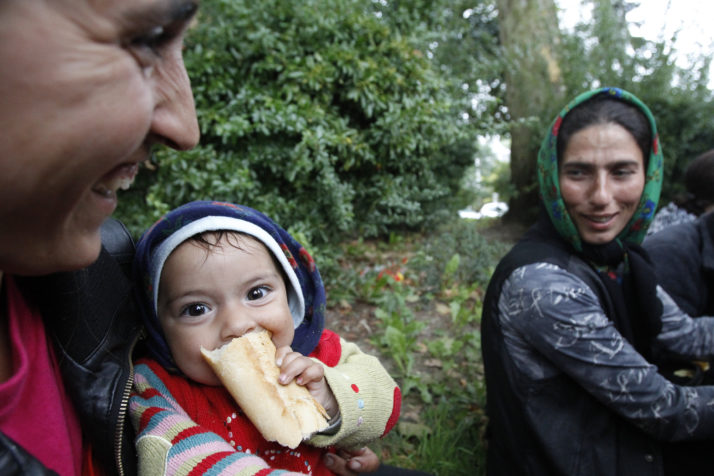
Photo: Roma Family from https://www.politico.eu/article/why-we-are-setting-up-a-european-roma-institute/
with article by Thorbjørn Jagland (Secretary-General of the Council of Europe) and George Soros (Chairman of the Open Society Foundations)
A Brief History of the Institutionalisation of Discrimination Against Irish Travellers
Dr. Sindy Joyce took over the ICCL twitter account on Woman Human Rights Defender (WHRD) Day on 29 November 2018 as part of the Front Line Defenders #WHRDtakeover. Here her tweets from that day are compiled together.
Mincéirs (Irish Travellers) are a traditionally nomadic ethnic minority indigenous to Ireland, distinct from the majority Irish population. Throughout history, varied terminology was used to describe us such as ‘Tinker/Tynkr’, ‘Itinerant’, and ‘Gypsy’. Mincéir is our true name in our own language i.e. Cant/Gammon, Traveller is a term put onto us because of our nomadic identity. The first mention of us is in the 5th century where we are called ‘whitesmiths’ because of our association with tin-smithing. However, our history is largely unrecorded, partly due to our oral tradition and state historical neglect.
Although the vast majority are no longer nomadic, it is still a vital part of identity and culture. Liégeois (1994, p.79) noted: “whereas a sedentary person retains a sedentary mind-set even when travelling, Gypsies and Travellers, even when not travelling remain nomadic. Even when they stop they are still Travelling People”.
Globally, clashes of culture between nomadic and sedentary populations have a long history (McVeigh 2007 and 2012). As property-less people nomadic groups including Mincéirs had no right to be included within the political or moral structures of European societies. Nomads were and are othered and viewed with suspicion. In most societies today nomadic peoples face extreme discrimination. According to Khazanov (1994), since the dawn of mankind there has been a violent confrontation between two lifestyles: the settled and the nomadic way of life. The battle between Cain, the farmer, and Abel, the herder, is often viewed as an illustration of this violent clash.
The clash between settled and nomadic populations is often at the root of violent conflicts, and time and again at the heart of such confrontation is the issue of the sharing of lands between nomadic and sedentary peoples. In Ireland, anti-nomadic legalisation was introduced by the British during the 1500’s, which penalised and criminalised our nomadic lives and represented us as rogues and criminals, ‘reflecting the bias of the sedentary population’.
1522: King Edward passed an “Acte for Tynkers and Pedlars” which stated “no person or persons called tynker, pedlar or pety chapman shall wander or go from one towne to another or from place to place out of the towne, parish or village”.
Theories coming from the Enlightenment, European philosophy and social sciences contributed to the domination of nomadic societies which justified the marginalization of nomadic groups including Mincéirs. Fianna Fail’s victory 1932 and the 1930s economic war effected the social status and the living standards of the Irish urban working-class and Mincéirs. The School Attendance Act (1926), Street Trading Act (1926), Housing Act (1931), Road Traffic Act (1933), Litter byelaws (1938), Unemployment Act (1938), all had a social effect on living conditions. Since Mincéirs practically never stayed in an area for long periods of time (nomadic), the School Attendance Act, although we were not forced to accept the Act, had considerable consequences on education in the long run. The Street Trading Act made it difficult for those who relied on trading in markets for employment, as a licence was needed to trade. These factors, along with the growth in the manufacturing market and a decline in labour within the agriculture sector, made it necessary for some Mincéirs to move from rural into urban areas. For some this was perhaps the beginning of settlement as Travellers began to reside in urban areas for sustained periods of time.
Almost immediately after the establishment of the new ‘Irish Free State’ government officials concentrated on State building. Since the land was needed by the State to build upon, more and more of our traditional camping grounds were disrupted by the local gàrda and council. As early as the 1930s, conflicts of land usage became the main dispute between us and the sedentary population. Previous to the new ‘Irish Free State’, Irish people were portrayed as nomads, beggars, ignorant, uneducated, backward, superstitious, drunk and violent people, a discourse which was entirely transferred onto us. Our nomadism was a constant reminder of the past and there was no room for us in a new Ireland, the dominant populace were embarrassed with their past and wanted to show case a new national image that moves away from the old stereotypical image. For that element of the past to be eliminated it was imperative to rid Ireland of nomadism and settlement became a vital operation. As State building and nationalism continued to expand we began to feel the burden of society’s attitude towards us and our nomadic existence. Public housing was at the top of the agenda in social policies and a total of 48,875 public houses were constructed between 1933 and 1943. Nomadism was frowned upon and attitudes to us got worse. By 1961 numerous local authorities had received many tenancy applications by Mincéirs (before forced settlement) and many families were taken off the list on the basis that the council was not prepared to house families of the ‘itinerant’ class.
Through the inter-war years and for some time after, the trades of Mincéirs were fundamental aspects of the Irish rural economy. Travelling around the countryside with tents and wagons while providing such essential crafts as tin-smithing, horse dealing, chimney-cleaning, selling domestic ware (hawking), carpentry, and seasonal agricultural labour, Mincéirs were a vital part in the rural economy. Rural depopulation increased mobility on the part of the rural community, while the advent of plastic, increased mechanisation, urbanisation, and government policy ensured that our way of life changed profoundly. The economic and social relationship between us and the sedentary population also rapidly declined. In the face of such dramatic changes, we were forced to migrate into more urbanized areas where we were not quite as welcome as we had once been in rural Ireland in previous decades. Perhaps the most significant and immediate impact on us related to the issue of accommodation, and the attendant introduction of many laws and restrictions on camping and mobility as outlined in the 1963 report.
Racism and discrimination in urban areas was rife and most of the sedentary population did not want to live alongside us, there were many protests against us moving into cities and towns, thus the government of Ireland decided to intervene in what they termed the “Traveller Problem”. In the 1960s, American businessmen began to take an interest in Ireland as a location for the commercial expansion of factories and the last thing the Irish government wanted was for them to observe the many camps dotting the countryside upon their arrival here as it would provide an ‘old’ image of Ireland.
Authorities soon came up with “a solution” and in 1963 one of the most significant and racist reports ever produced in relation to Ireland’s indigenous community was published. It was the first Irish government report in relation to us and its commission had no Mincéir representative or had no contact with the community. On the 1st of July, 1960, the inaugural meeting of the commission was held in the Government Buildings, Merrion Street, Dublin. Mr Charles J. Haughey addressed the members of the commission where he stated that “there could be no ‘final solution’ until itinerant families were absorbed into the general community”.
Many recommendations were published with the report including “to register the whole community, to prohibit tent dwellings where the police could enforce fines and/or prison sentences, to induce them to settle by offering unemployment assistance to those who settle for at least 12 months”. The whole aim of the report was “rehabilitation” and the hope for eventual “absorption” into the sedentary population. Restrictions on our economic activities resulted in many of us living in poverty with no State assistance and, according to government, this poverty was equated to nomadism.
The 1963 Report of the Commission on Itineracy was produced to “enquire into the problems arising from the presence in the country of itinerants in considerable numbers” (p.110). Framing us as a ‘problem’ from the beginning, it codified the State’s ideological opposition to nomadism in a manner which had not previously existed. The majority of the Irish public accepted the report with ignorance and as beneficial for Travellers. For example, a reader’s letter to The Evening Press in 1964 entitled ‘Homes for Itinerants’ read: “The people of the countryside is to be congratulated on the constructive way in which it has set about helping itinerants. It is only by offering homes and the opportunities of leading a normal life that there is any chance of the itinerants becoming normal members of society”. So we were not seen as ‘normal members of society’.
Not only were we experiencing the effects of the 1963 report from local authorities who attempted to force us into settlement but, also the ordinary people of Ireland had decided to turn their back on us. As the late 60s and early 70s approached several acts and regulations were produced to assist in the commission’s aim of ‘settlement’, ‘assimilation’ and eventual ‘absorption’. And to aid this aim the operation of caravan sites was introduced in 1968 where Halting sites were introduced, these were only meant to act as temporary to ease to the community into settlement however some families that moved onto these sites never moved off again and some are still in operation today. The first halting site to be built was Labre Park, ironically called after Saint Benedict Joseph Labre, saint for the homeless, beggars and the mentally ill. The government stated that the “provision of these sites should only be the first step of stabilization and absorption”.
At the core of anti-Traveller racism is the assumption that nomadism is not a valid way of life. The State response has been to outlaw it and measures taken have been to “assimilate/absorb” us to stop us from being who we are, the dominant powers viewed as ‘less than’ or ‘inferior’ than the majority population, they viewed us as people that were somehow ‘failed settled people’ or ‘broken’ in that we needed to be ‘fixed’ and ‘aided’ in becoming ‘settled’ which can easily be defined as cultural and ethnic genocide.
Since our identity was viewed as ‘inferior’, the next stage is denial of that identity and the assimilation of us. Assimilation is an institutional response to ethnicity denial, which leads to the issues we see today. From this what is often referred to as “Failure in delivery” of services and resources, is in fact, a successful policy of identity denial and anti-Traveller racism. Research has shown that we are the most discriminated and marginalized people in Ireland. The Millward Brown IMS study 2004 (for the KNOW racism campaign) found the majority population to have negative attitudes towards us with 72% of the population agreeing that they were not willing to accept us among them, 13% agreed that we should have less rights and 23% agreed that our life and culture should be abolished. Farrel and Watt (2001) say “if groups do experience racism in Ireland, it was somehow their own fault arising either from some form of deficiency on their part and/or the failure of such groups, in particular the Traveller community, to allow themselves to be subsumed into Irish society”. As Fanning (2002) puts it, “the rights of Travellers are called into question within a one-sided communitarianism (linking of rights to responsibilities) which suggests that the dominant community is entitled to exclude Travellers until they demonstrate compliance with the standards and cultural norms of the dominant settled community”.
**************************
Doctor Sindy Joyce is a Human Rights Defender (HRD). She has a B.A in English and History and a Masters in Sociology. She was the module coordinator and lecturer in ‘Travellers, Rights and Nomadism’ and ‘Travellers, Ethnicity and Rights’ in University College Dublin with the School of Social Policy, Social Work and Social Justice. Her research interests include both direct and indirect forms of racism, ethnicity/identity, social/political constructions of Irish Travellers and the production of space related inequalities. Sindy won the 2014 Traveller Pride Award for Education. Her PhD title was Mincéirs Siúladh: An ethnographic study of young Travellers’ experiences of racism in urban space. Her research addresses the original and important question of how anti-Traveller racism shapes young people’s use of and movement through public space. Sindy was co-supervised by Dr. Amanda Haynes and Dr. Martin Power of the Department of Sociology, University of Limerick. Sindy was successful in winning the prestigious Irish Research Council Government of Ireland Postgraduate Scholarship Scheme with a top score of 95.5%. Sindy’s publications include:
2013: Seminar Review of “Imogen Tyler: Revolting subjects: eviction and occupation in neoliberal Britain”, Socheolas: Limerick student of sociology, 5(1), Available: http://www3.ul.ie/sociology/socheolas/vol5/1/Sindy%20Joyce.pdf
Joyce, Sindy (2015) ‘Divided Spaces: An examination of everyday racism and its impact on young Travellers’ spatial mobility’ in Cuffe, J.B. ed.,Irish Journal of Anthropology, 18(1), ISSN:1393-8592
Joyce, S.et al (2017) ‘Anti-Traveller and anti-Roma Hate Crime in Ireland’, in Haynes, A., Schweppe, J., and Taylor, S. eds. Critical Perspectives on Hate Crime: An Irish Perspective, London: Palgrave Macmillan.
See more from the Irish Council for Civil Liberties (ICCL) at http://www.iccl.ie
Racism in Ireland: reporting racism and hate speech
Racism towards people of colour and Travellers is rife in Ireland and many parts of the world today. We can all take action! Every step we take to combat racism helps.
iReport.ie Racist Incident Reporting System was launched by the Irish Network Against Racism (INAR) in July 2013.
It allows the people, communities, and organisations of Ireland to confidentially report racism, including online hate speech. It allows the people, communities, and organisations of Ireland to confidentially report racism nationwide.
The IReport project is a:
- National, confidential and user-friendly way to report racism from any online device.
- Enables people who experience or witness racism and/or those supporting them to do something about it and break the silence.
- Used for monitoring racism in Ireland.
- Provides evidence and data on racism in Ireland.
- Counters an increase in racism and a hardening of racist attitudes.
- Helps focus the discussion on finding solutions to racism.
The Irish Network Against Racism (INAR) is a membership organisation: a growing, national Network of diverse Civil Society Organisations committed to combating racism and all related forms of discrimination in every sphere of life in Ireland. INAR are dedicated to finding common strategies and policy positions for combating racism, finding ways of complementing each other’s work, and to offering cross-community and cross-sectoral support and solidarity.
There are useful guides and reports on their site so do take a look. A very useful ‘Responding to Racism Guide‘ is here:
https://inar.ie/wp-content/uploads/2019/10/Responding-to-racism-guide-FINAL-2.pdf
Whatever your nationality, be an ally to people experiencing racism in Ireland today.
Also take a look at the website of the European Network Against Racism: the voice of the anti-racism movement in Europe
Developing a Charter for Inclusion in East Cork: :Le Cheile Project is underway!
The Le Cheile ‘Our Selves, Our Lives’ project, which was on hold due to Covid19, has started up with its first online discussion group happening soon. Our aim with this project is to bring together people from different backgrounds, including Irish, to talk about what best represents our culture, and what is needed to make East Cork inclusive and help integration into the community.
An outline of activities below. With facilitators Tania, Hayley, Azizia and Rola, we’ll be welcoming people into the discussion and looking forward to hearing ideas, experiences and learning more about each others cultures and way of life.
There are still a few places available, so if you are interested, please get in touch soon! More information on the project itself is in the slides below.
This project is funded by the Department of Justice & Equality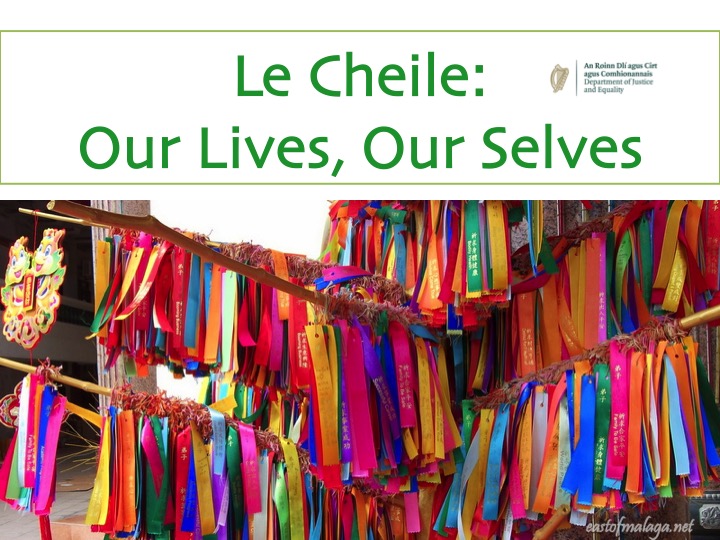
Health Information in Kurdish, Arabic and Chinese
If you would like to display these posters we can send them to you – please email hayleycumannnadaoine@gmail.com for more information.
Intersectionality
intersectionality is the concept that all oppression is linked. More explicitly, the Oxford Dictionary defines intersectionality as “the interconnected nature of social categorisations such as race, class, and gender, regarded as creating overlapping and interdependent systems of discrimination or disadvantage”. Intersectionality is the acknowledgement that everyone has their own unique experiences of discrimination and oppression and we must consider everything and anything that can marginalise people – gender, race, class, sexual orientation, physical ability, etc. First coined by Professor Kimberlé Crenshaw back in 1989, intersectionality was added to the Oxford Dictionary in 2015 with its importance increasingly being recognised in the world of human rights.
A good example of acknowledging intersectionality came from the Tipperary Rural Traveller Project on facebook this week with their support of Clonmel Virtual LGBT Pride.
https://www.facebook.com/108896344121935/posts/150512663293636/
Traveller Pride, Traveller Health, Traveller Education
Kilkenny Travellers Helena Power & Hannah Carthy Speaking About Traveller Pride – Well Done, Ladies!
#diversitywithin
https://www.facebook.com/100009930366830/videos/1262891700718497/
Pavee Beoirs and Lackeens: Our Health, Our Words, explains some of the complex structural and institutional forces that shape Traveller women’s mental health in contemporary Ireland
Mental Health Supports
https://www.paveepoint.ie/pavee-50808/
Impact of Covid19 on Traveller education
Since the beginning of the COVID-19 pandemic, Pavee Point has raised its concerns at the impact of COVID-19 measures on Traveller and Roma transfer to and progress within higher education. Pavee Point and the National Traveller Women’s Forum wrote to the then Minister for Education and Skills, Joe McHugh, TD and we co-hosted an education forum with Travellers and Roma and a subsequent roundtable with over 50 Access Officers from around the country. In a 22 page report on the Forum we make a series of recommendations for immediate action and more long-term recommendations. These include –
– Assess the impact of Leaving Cert predicted grades process for prospective Traveller and Roma students and support and promote measures to alleviate any associated negative consequences for third level progression.
– Develop and implement a National Traveller Education Strategy building on the Third Level Action Plan, incorporating the NTRIS (National Traveller and Roma Integration Strategy) education actions with targets, timelines and appropriate monitoring processes
Imelda May has released a new poem, written in response to recent events – hear You Don’t Get To Be Racist And Irish, and read the text below…
https://www.facebook.com/watch/?v=2589654271286177
You don’t get to be racist and Irish
You don’t get to be proud of your heritage,
plights and fights for freedom
while kneeling on the neck of another!
You’re not entitled to sing songs
of heroes and martyrs
mothers and fathers who cried
as they starved in a famine
Or of brave hearted
soft spoken
poets and artists
lined up in a yard
blindfolded and bound
Waiting for Godot
and point blank to sound
We emigrated
We immigrated
We took refuge
So cannot refuse
When it’s our time
To return the favour
Land stolen
Spirits broken
Bodies crushed and swollen
unholy tokens of Christ, Nailed to a tree
(That) You hang around your neck
Like a noose of the free
Our colour pasty
Our accents thick
Hands like shovels
from mortar and bricklaying
foundation of cities
you now stand upon
Our suffering seeps from every stone
your opportunities arise from
Outstanding on the shoulders
of our forefathers and foremother’s
who bore your mother’s mother
Our music is for the righteous
Our joys have been earned
Well deserved and serve
to remind us to remember
More Blacks
More Dogs
More Irish.
Still labelled leprechauns, Micks, Paddy’s, louts
we’re shouting to tell you
our land, our laws
are progressively out there
We’re in a chrysalis
state of emerging into a new
and more beautiful Eire/era
40 Shades Better
Unanimous in our rainbow vote
we’ve found our stereotypical pot of gold
and my God it’s good.
So join us.. ’cause
You Don’t Get To Be Racist And Irish.
Traveller Pride Week
Yesterday marked the beginning of Traveller Pride Week with its official launch held by newly appointed Senator Eileen Flynn, the first female Traveller in the Oireachtas.
The theme of this year’s Pride Week is Recognising Diversity and Pride within the Traveller Community and the 2-week programme celebrating Traveller culture was launched in a live streamed event followed by a panel discussion.
Speakers on the panel included Martin Collins, Director of Pavee Point; Catherine Joyce, Coordinator of Blanchardstown Traveller Development Group and Amy Ward, NI Traveller activist. The planned events have been stripped back due to Covid-19 with most held online. There will be musical performances, comedy and other events taking place over the two weeks.
Traveller Pride Week aims to celebrate and promote the contribution of Travellers across Irish life. Organisers say they want to “help create change and overcome racism and discrimination” and added that they ask people to “endorse equality and inclusion” by using ‘#diversitywithin’ on social media platforms.
BAFTA Award Nominations!
We’re thrilled to discover that the film Float Like A Butterfly has been nominated for 3 x IFTA awards! Congratulations to Carmel and Triona for their nominations and to all the cast/crew for their hard work on the film!
NOMINATIONS
– BEST FILM 2019
– BEST SCRIPT (Carmel Winters)
– BEST COSTUME DESIGN (Triona Lillis)
Exploring Cultures
When we come to our Le Cheile: Our Lives, Our Selves project this autumn, we’ll be exploring different cultures through conversation, music and food. We also aim, where needed, to source language and other tuition for people taking part.
Today’s page is a selection of film shorts from different countries and cultures – enjoy the cinematic travels!
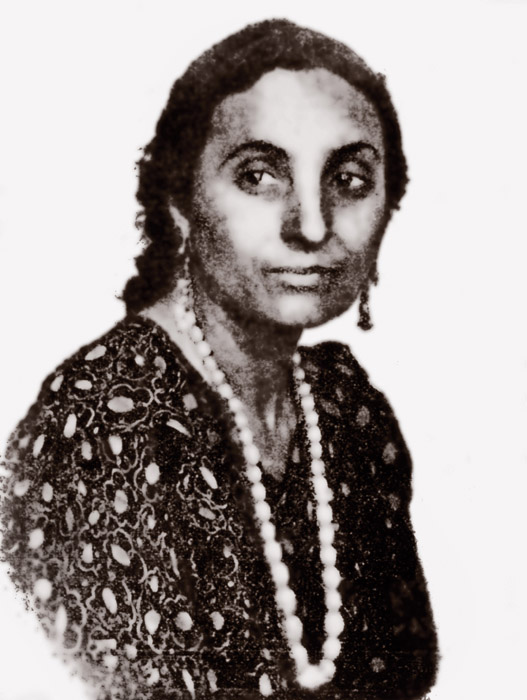
Traveller Representation in the Seanad
Eileen Flynn has made history as the first woman from the Travelling community to sit in the Seanad – the upper house of the Irish Parliament.
The new senator said she had worked all her life to “break barriers” and will now use her role to help Travellers and other marginalised communities. Her ambition is to introduce hate crime legislation in the Republic of Ireland.
Travellers’ rights activist Eileen Flynn has said it is “unbelievable” to be one of 11 new senators nominated by Taoiseach Micheál Martin. Speaking on RTÉ’s Sunday with Miriam, Ms Flynn described how the call from Mr Martin was the “most amazing call” she ever got in her life. She spoke of her upbringing, where she was raised on a halting site in Ballyfermot in Dublin.
She is the only Independent senator in the group of 11 announced yesterday by the Taoiseach.
Ms Flynn was unsuccessful in the Seanad Elections in March, but she said she had great cross-party support and thanked the Independent TD Thomas Pringle, in particular, for his support during her campaign.
She said it was “phenomenal” to be nominated by the three party leaders in the new government.
She said she completed an access course with Trinity College Dublin before earning a degree from Maynooth University.
Speaking of what she will do in the Seanad, she said she would like to continue the work of Collette Kelleher, who she said had “started some great work with policies to bring change for the traveller community” and that she would “love to see hate crime legislation in Ireland”.
Ms Flynn said she looks forward to working people at the “very end of Irish society”, that she wants to help people who do not have equality of opportunity. She said she is not going to be the voice of black people “because I am not black” but she wants people to come into the Seanad to speak for themselves.
She said she hopes young Traveller women will look at her and say “life is hard, but I will keep at it”.
Flynn has campaigned on anti-racism issues, marriage equality, housing and abortion rights and will be the first female Traveller in the Oireachtas.
Speaking to Miriam O’Callaghan on RTÉ Radio One, Ms Flynn said that she hopes to go on and make a positive impact for communities across Ireland which are underrepresented.
But the moment she received a call from the Taoiseach is one she will never forget. Photo below is from Ms Flynn’s first speeach in the Seanad.
Our own TJ Hogan (Coordinator of the East Cork Traveller Project) was also nominated for the Seanad. Congratulations to him for his hard work and commitment to Traveller rights. We hope to see him taking public office too in the not-too-distant future!
Racism: Learn, Report, Make Change
DEFINING RACISM
Racism is rife in Ireland, and impacts negatively on People of Colour, Travellers and Refugees/Asylum Seekers. We can all learn more about how to combat racism, and how to be an ally… The Irish Network Against Racism (INAR) is a very useful site: some extracts are here. See http://www.inar.ie for more information.
INAR understands RACISM as: Any action, practice, policy, law, speech, or incident which has the effect (whether intentional or not) of undermining anyone’s enjoyment of their human rights, based on their actual or perceived ethnic or national origin or background, where that background is that of a marginalised or historically subordinated group. Racism carries connotations of violence because the dehumanisation of ethnic groups has been historically enforced through violence.
In other words, racism is when an individual, group, structure or institution intentionally or unintentionally abuse their power to the detriment of people, because of their actual or perceived “racialised” background.
It’s important to understand that racism is an ideology from a colonial past which “holds one race superior, while another inferior” in the words Bob Marley in his song ‘War’.
This understanding follows from international and civil society definitions:
INTERNATIONAL LAW
The United Nations International Convention on the Elimination of all Forms of Racial Discrimination (ICERD) defines racism as: ‘Any distinction, exclusion, restriction or preference based on race, colour, descent, or national or ethnic origin which has the purpose or effect of nullifying or impairing the recognition, enjoyment or exercise, on an equal footing, of human rights and fundamental freedoms in the political, economic, social, cultural or any other field of public life.’[i]
[i]UN International Convention on the Elimination of all Forms of Racial Discrimination (CERD), (1969), Article 1
NATIONAL CONSULTATIVE COMMITTEE ON RACISM AND INTERCULTURALISM (2007)
Traveller Organisations Say the Time for Action on Racism is Now
Joint statement from Pavee Point Traveller and Roma Centre, Irish Traveller Movement , National Traveller Women’s Forum, Minceirs Whiden, Exchange House Ireland, Involve, The Parish of the Travelling People, Traveller Mediation Service
“We as Traveller organisations are outraged by the death in police custody of George Floyd and by the ongoing responses of his country’s leadership.
We express our sympathy and solidarity to his family, community and to African Americans who are voicing their determination to demand that the racism embedded in colonialism and slavery is once and for all addressed in their country.
We stand in solidarity with all people of African Descent and the anger they feel at this time and with the efforts of Black Lives Matter and other groups,including those here in Ireland, to name and address this racism.
As Travellers, we have long since been exposed to anti-Traveller racism in Ireland and elsewhere. We call on the incoming government to act immediately to address the discriminations, including structural racism, experienced by Black communities here and by many others including Travellers and Roma.
The time for action is now”
Irish Human Rights and Equality Commissioner
Congratulations to Dr. Rosaleen McDonagh @paveebeoir
on her recent appointment as the Irish Human Rights and Equality Commissioner @IHREC
An Online Event
The National Action Group for LGBT+ Traveller and Roma will host a webinar with a Panel of LGBT+ Travellers, Roma, Romani and Gypsy participants discussing their experiences, issues of discrimination within the LGBT+ community and how Pride is still very much a protest.
Traveller Pride Week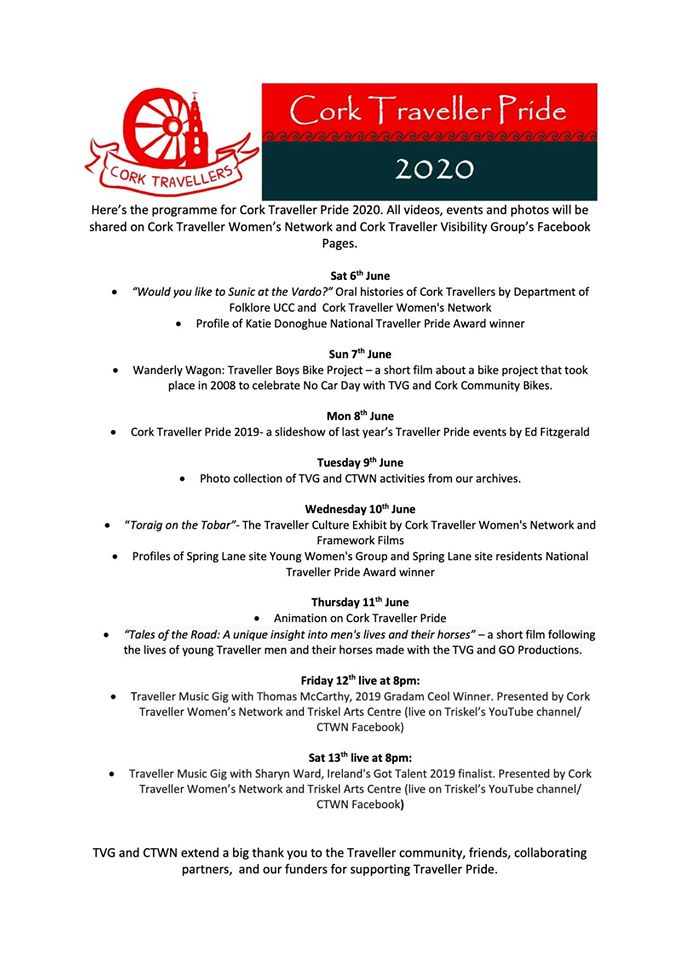 Check out this video shared by Cork Traveller Visibility Group Ltd as part of Cork Traveller Pride 2020
Check out this video shared by Cork Traveller Visibility Group Ltd as part of Cork Traveller Pride 2020
As part of Cork Traveller Pride 2020 celebrations, we are delighted to share “Would you like to Sunic at the Vardo” a celebration of Cork Traveller oral histories, featuring John Carroll, Brigid Burke, Katie Donoghue and Mary O’Sullivan, made by Karen Harkin and Cliona O’Carroll of UCC Folklore and Ethnology, with support of the Heritage Council. Cork Traveller Visibility Group Ltd Cliona Monica
https://www.facebook.com/752270951645072/videos/894758937695119/
Toraig on the Tobar, beady pockets, paper flowers, barrel top wagons, raising the Traveller Pride flag, cinema, concerts, quilts, heritage, culture and TRAVELLER PRIDE! Here we’re sharing some photos from Cork Traveller Women’s Network facebook page to look back at Cork Traveller Pride over the past 8 years. Enjoy!
Translated Covid19 Resources
[Thanks to Cork County PPN & HSE]
For those whose first language is neither English nor Irish, we have translated public health information into 24 other languages. These include Albanian, Arabic, Bulgarian, Simplified Chinese, Czech, Farsi, French, Georgian, German, Greek, Hungarian, Italian, Kurdish, Latvian, Lithuanian, Pashto, Polish, Portuguese, Romanian, Russian, Slovak, Spanish, Urdu and Yoruba. We are also working on developing resources in Somali and Eritrean. The most up to date translated partner resources for COVID-19 can be found here.
Roma
Under the resources listed above you will also find a video for the Roma Community in Romanian. This video can be found here. There is a Roma specific resources page which includes easy read and image based communication documents and a translation of the Phase 1 government re-opening roadmap which can be found here.
Migrant Health
There is also a Migrant Health resources page, which includes videos in various languages and further specific translated resources.
Other Resources:
The Covid 19 World Service is a joint initiative of Nasc [see their website https://nascireland.org/ and Together Ireland.
[Together Ireland is a not-for-profit initiative, supported by the TOMAR Trust, designed to promote and enable greater integration across Irish towns. In the absence of a national integration plan they aim to work with local communities to bring people together for the benefit of all. This can be done through sport, music, community initiatives, business and a wide variety of other routes. They have piloted this initiative in three towns – Cahir, Fermoy and Mitchelstown]
The Covid 19 World Service has video messages from doctors and other healthcare professionals in several languages for migrants living in Ireland.
- Video 1: General advice on how to prevent the contraction and spread of the virus.
- Video 2: Information on self-isolation, what to do if you test positive for Covid 19 or are a contact of someone who has.
These videos can be found here.
The Government’s ‘Community Call – Advice and Contact Information for Your County’ leaflet has been translated into 12 different languages and is available here.
Public Health Information:
As always, for the most up to date information and advice on Coronavirus, please go to: https://www.gov.ie/en/
https://www2.hse.ie/
https://www.hpsc.ie/a-z/
Please share and pass on these resources as widely as possible to relevant communities.
Keep well, remember we’re #InThisTogether and #HoldFirm
A great collection of Traveller culture at the National Museum
View it here: https://www.museum.ie/en-IE/Collections-Research/Folklife-Collections/Folklife-Collections-List-(1)/Traveller-Culture
Today: a new HSE resource and news items
We welcome your help, support and partnership to our new HSE campaign #HoldFirm.
Watch the video here: https://youtu.be/ndJrYIm5zHs
Campaign messages can be found here:
Facebook Page: facebook.com/HSElive
Instagram: instagram.com/irishhealthservice Hashtag: #HoldFirm #StaySafe
Twitter handle: @HSELive
Please share the video with your own message or post it to your social media page using #HoldFirm and tagging @HSELive https://www.youtube.com/watch?v=ndJrYIm5zHs
Here is a news item from the Irish Times…
More than €4m in Traveller housing funding left unspent
Ten councils did not spend any money, three didn’t apply for funding, three spent less than half
Kitty Holland Social Affairs Correspondent
File photograph: Cyril Byrne/The Irish Times
Just two thirds of the funding allocated for Traveller accommodation was spent last year, according to new figures. Of the €13 million provided by the Department of Housing for Traveller accommodation last year €8.6 million was spent by local authorities and 10 authorities did not spend a cent. These are Donegal, Galway City, Laois, Leitrim, Longford, Mayo, Monaghan, Tipperary, Westmeath and Wicklow. The figures were provided to Sinn Féin’s housing spokesman Eoin Ó Broin and described by him as “totally unacceptable”. They come as data from the Department show there are more than 1,000 Traveller families living in unsafe, insecure or overcrowded conditions.
According to its most recent “count” of Travellers’ housing conditions, in 2018 a total of 591 families were on unauthorised sites, ie by the side of the road and usually without running water, toilets or secure electricity, and a further 927 were sharing accommodation with other families.
A total of 117 families are by the side of the road in counties that did not spend any money on accommodation last year, including 32 families in Co Mayo and 31 in Co Tipperary.
Spend
Eight local authorities – Carlow, Clare, Dun Laoghaire-Rathdown, Fingal, Kilkenny, Limerick, Louth, Meath – spent more than their allocated amounts, described a “welcome” by Mr Ó Broin.
However three that spent nothing did not even apply for funding, including Mayo which has 47 Traveller families in unsafe or overcrowded conditions. Galway city council and Laois county council also sought no funding last year.
Others, though they spent some of their funding, drew down less than half of what was provided. Cork city, which was allocated €275,799 drew down just €42,319 (15%). Galway county, allocated €1,412,596, spent just €670,440 (48%). Waterford, allocated €170,000 spent just €77,562 (46%). “Unfortunately, too many Traveller families are still living in unsafe, overcrowded accommodation,” said Mr Ó Broin.
**********************************
The National Social Inclusion Office has added two very useful information pieces to the Travellers Resources Page
This first link details the work of MABS and what support is available:
They have also added the second video clip in the series being produced by THU CHO3 and University Hospital Limerick.
The key message across this video series is ‘Use Your Heart & Stay Apart’. The video looks at what to expect when you arrive at the Emergency Department by car. It reinforces that we must remain apart from our loved ones as they come into hospital.
Credit: University Hospital Limerick.
The video is available at:
and on the resources website page
A useful guide to managing money from MABS is here:
Online Counselling now available at the Traveller Counselling service
In response to the current Covid19 crisis the Traveller counselling service are now offering online counselling to members of the Traveller community who feel they would like to talk to a counsellor, this can be for one session or a number of sessions. These counselling sessions are one to one, are safe, confidential and free of charge. At present we only provide counselling to people who are over 18 years. Anyone who wishes to have a counselling session can to click on the link below and follow the steps.
https://travellercounselling.ie/online-counselling
Click on a counsellor of your choice
Leave your name and number and
Tick the term of service box
The counsellor will get in touch with you to arrange a time for an online counselling session and will send you a link to click on at the time agreed for your online session.
Or you can go to our website
If you have a problem linking in, you can call our counselling support line 0863081476
Please note: the Traveller online counselling service is not an emergency service and cannot respond to a person in crisis. Please refer to one of the following support services if needed:
– Samaritans – 116 123
– Pieta House – 180 247 247 or text HELP to 51444
– Your Mental Health Information: 1800 742 444
– GP or Out of Hours GP
– Get in touch with your local Traveller organisation
*********
Today: from ECT Coordinator TJ Hogan:
Travellers and COVID-19
A piece of writing from TJ Hogan, ECT Coordinator with Breda Hogan for the DISCS project, a project which researches social challenges. For more information see their website at https://discs.ie/
CORK, IRELAND 29/04/2020
In these uncertain times, we find ourselves stuck and confused with who or what to believe. As news on the coronavirus (or COVID-19) floods the headlines, many have begun to panic and some question whether or not we as a nation have the infrastructure to survive this pandemic.
This is something that no one could have foreseen or imagined landing on their doorstep. Those who lack the resources are at much higher risk of not only contracting the virus but losing what little they have during this period of isolation. These are vulnerable people. In Ireland, one such group that falls under this category is the community of Irish Travellers.
THE COMORBIDITIES OF INEQUALITY
Travellers are a small indigenous minority that have been part of Ireland for centuries. Unfortunately, they find themselves in the disadvantaged category of Irish society, especially in areas like education, housing, and access to sanitation and basic health services. As you can imagine, the coronavirus can flourish under these conditions.
While only making up .06% of the country’s total population, 50% of Irish Travellers statistically do not live past the age of 40. Only 1% of Travellers live to see the age of 65 or beyond.
According to the 2010 All Ireland Traveller Health Study published by the Irish Department of Health, the average life expectancy of men, women and children within the Traveller community is, on average, 11-15 years below the general population. The number of deaths among Traveller infants is estimated at 14.1 for every 1,000 live births, compared to 3.9 for every 1,000 live births of the majority.
The study also showed that deaths from respiratory and cardiovascular diseases and suicides are higher among Travellers. Travellers are 7 times more likely to commit suicide than the general population and currently hold the highest numbers of deaths in Europe per 40,000 member populations, which is more or less the total number of Travellers living in Ireland according to the CSO in 2016.
You would imagine that circumstances have changed for the better in the decade that has passed since the study was published but, unfortunately, that is not the case. With the growth of population in the community, Travellers have been trying their best to survive on the same limited facilities and spaces as they have done for many years. To this day, however, many halting sites throughout Ireland don’t have access to clean running water or bathroom facilities.
ISOLATION AS PRIVILEGE
The novel coronavirus is an infectious disease that spreads through mere coughs and sneezes, by touching surfaces with the virus on them and spreading it to your face, and research suggests it can be as simple as breathing the same air of an infected person in an enclosed space.
In Ireland statistics have shown that personal contact is the main cause for the spread. When someone sneezes, for example, the droplets from their sneeze will fall on floors or surfaces near them. And if someone comes along and touches it, they could be in danger of contracting the virus themselves, which is why we have been told to keep our distance.
Travellers are already more susceptible to getting some form of chronic disease when compared to the general population, due to lack of basic facilities, resources, and access to health care. Under present circumstances where the government suggests we wash our hands on a regular basis and keep our distance from one another, however, the vulnerabilities of the Traveller community are compounded.
Indeed, Traveller sites – be they official or unofficial – commonly don’t have enough space to put distance between trailers or families, which is why social distancing is an issue. It’s also difficult to wash your hands on a regular basis when you don’t have access to running water.
Today approximately 3,000 or more Travellers live on the side of the road, with little or no access to basic amenities such as running water, toilets, refuse removal and even electricity. But Travellers have been living in such poor conditions for decades!
Although money was allocated to local authorities to build Traveller-specific accommodation with working toilets, refuse service provisions and common necessities like taps and electricity, not much has changed. According to a 2019 report, most of the money went unspent and members of the Traveller community were forced to compete for resources between them. Many suffered greatly as a result.
Prior to 2019, a campaign was underway called Traveller Homes Matter. This campaign was lead nationally by the ITM (Irish Traveller Movement) and a focal point of my role within the organisation. The main aspect of the campaign was to pressure the Irish government to implement policy and act upon Traveller specific accommodation on a national level.
Last summer the campaign came to a conclusion following the publication of a report outlining the current accommodation crisis and living conditions. The hardships of overcrowding faced by the community as a whole were central to this report, which emphasised the need for direct action. However, no policy or plans have been put in place – even as these issues relate to our current circumstances.
All of which is to say that Travellers are already at a disadvantage and due to limitations faced by the community, it is impossible to follow current guidelines.
NAVIGATING A PANDEMIC AD-HOC
On the 3rd of March 2020, the Department of Housing announced specific instructions and funding to local councils to provide Travellers with the basic amenities needed for the duration of the pandemic. Traveller sites have since been in the process of receiving water and sanitation facilities.
As I write this nearly two months later, however, I question whether or not local authorities will implement plans and allocate funding as previously directed.
Personally, in my own interactions with other members of my community and personal observations, not a lot has been done. Before this, many Traveller families would have had to share toilets and washrooms with other families. As Travellers and Irish natives, it is our nature to embrace those around us – especially our family and friends. Physical distancing has become something that is very hard for people to accept.
Self-isolation in overcrowded conditions can be particularly tough. You may have more than one family living together in the same bay, which means you may need to pass or come into contact with them in order for you to be able to go to the shop or see the doctor. Keeping at least 6-foot distance can be close to impossible when you have trailers perched up alongside one another, because of lack of space.
Something as simple as opening your windows could mean you are still not within your boundaries – not just with those in your own bay but those in the bay behind or next to you.
Travellers have called for housing and appropriate living conditions to be built for so many years. If action had been taken when monies were allocated in the past, we would not be in the precarious position we are in today!
Indeed, this is the fault of local authorities and the state. The lack of action and enforcement of plans by both parties is not acceptable! Nor is it acceptable for the national media to shift the blame to the Traveller community. The Irish Times, for example, published on the 2nd of April 2020 that the spread of coronavirus among Travellers was due to their not taking this pandemic seriously! This claim, however, couldn’t be further from the truth. Many Travellers are unable to follow the guidelines in place because of circumstances beyond their control.
As I mentioned, Travellers face disadvantages within the educational system. Many choose to leave school because of racial prejudice or because they were nomadic and did not settle in one place for too long. This in turn means many of the Traveller community are unable to read or write. Understanding public posters, government letters, booklets and even searching online for information surrounding the coronavirus can be extremely difficult.
As Travellers are among the most vulnerable people in this country, the clear lack of infrastructure in place to ensure their safety is a failure of the state.
MUTUAL AID AND COMMUNITY
In Ireland, official Traveller sites tend to be built on the outskirts if the city. It is not uncommon for someone to have to travel much further than 2km to reach a shop or seek medical attention.
Imagine that you are experiencing symptoms of the virus: you don’t feel well and understand you need to isolate but cannot drive or don’t have access to a car. How do you approach this type of situation? An ambulance can be called but most wouldn’t fit into the bay of a site to attend to the person. Typically, local authorities hold the keys to site barriers, sheds and gates. This means that if a barrier was obstructing an ambulance or fire truck, for example, no one would be able to open or move it, to allow them access.
Funerals could also present dangers. Reducing the number of attendees can be difficult because Travellers typically have much bigger families. It was proposed by the Irish government that only close family may attend, such as brothers, sisters, parents and children. Numbers are said to be kept to less than 10. But when it comes to a much larger Traveller family, like my own, you will find that they could have at least 10 brothers and sisters, without counting anyone else.
Choosing who should and shouldn’t attend is something that Travellers will not and should not have to do. This is very inhumane and goes against our core values as Travelling people and devoted Christians. We are all reared up to be a very close family unit.
Speaking directly to the community now, however, I would advise to avoid social gatherings where possible and be cautious when coming into contact with other people. I want to commend my community for how they have handled this situation so far given that the odds are stacked against us!
For instance, a Traveller hotline has been set up to give the community advice and updates on the current situation, and to direct individuals to a place where they can be tested. It has been noted that Travellers should also announce to their doctors that they are in fact members of the Traveller community so that they can be looked after as vulnerable persons and receive the relevant care.
We will rise above this. It saddens me that we are limited to using social media as a remembrance of those who have passed through this time and were unable to come out and embrace one another like we have always done. I want you all to keep using social media to keep our memories alive and to keep in touch with those around us! As we all try our best to isolate under these conditions, online contact is the best way to check up on people who may not be O.K., especially those you know who struggle with loneliness.
Please do not follow false information. Stick to reliable sources like gov.ie or the HSE. Finally, I want to say that there are supports out there. I have attached them below.
- Traveller Hotline – HSE: 1800 808 809
- National Traveller organisations:
ITM (Irish Traveller Movement): _________________01 679 6577
Minceir Whiden: _______________________________ 0858804450
Pavee Point: __________________________________01 878 0255
National Traveller Mabs: ________________________07 610 7200
National Traveller Mental Health Network: __________085 125 3211
Exchange House: _______________________________01 872 1092
HSE General Public Hotline _________________________1850 241850
- Other notable contacts
Travelwise _______________________________________01 613 1733
Alone __________________________________________081 822 2024
Senior Line ______________________________________1800 804 591
Samaritans ______________________________________116 123
Pieta house ______________________________________1800 247 247
Womens Aid _____________________________________1800 341 900
FLAC _________________________________1890 350 250/01 874 5690
Workers’s Rights ___________________________________1890 747881
Threshold ________________________________________1800 454454
Also today: Pavee Point’s
Traveller Domestic, Sexual Gender-based Violence Pilot Project
Pavee Point Traveller and Roma Centre, Cork Traveller Visibility Group, St. Catherine’s Community Services Centre and Wicklow Travellers Group have teamed up in a new national pilot project to employ four Traveller Domestic, Sexual Gender-based Violence (DSGBV) Community Workers. The project is funded by Tusla the Child and Family Agency.
The aims of the project:
§ To support Traveller knowledge and understanding of, and response to, issues of domestic, sexual and gender-based violence
§ Improve responses to domestic, sexual and gender-based violence against Travellers through service and policy development
§ Work to ensure equality of access to, and outcomes from, domestic, sexual and gender-based violence services to identify barriers and effectively engage with Traveller women in accessing and using their services.
The work:
§ Promote a model of Traveller participation in the prevention of domestic, sexual and gender-based violence
§ Liaise and create dialogue between Travellers and domestic, sexual and gender-based violence service providers in their local areas
§ Create and carry out awareness raising and capacity building activities in their local areas
§ Inform domestic, sexual and gender-based violence policy and practice at local and regional levels
For more information, contact:
National Coordinator for the Traveller DSGBV Pilot Project: Laura Pohjolainen
Email: laura.pohjolainen@pavee.ie
Telephone: 01 878 0255 ext. 122
Carlow Traveller DSGBV Community Worker:
Cork Traveller DSGBV Community Worker:
Fingal Traveller DSGBV Community Worker:
Wicklow Traveller DSGBV Community Worker:
And a song or two – let’s keep our spirits up as we get through this crisis:
https://www.youtube.com/playlist?list=PLIZc7d1Y9ZeqajY2R_BJPpK4GX5Blav9F
IN TODAY’S UPDATE WE’VE SOME INFORMATION FOR TRAVELLER MUMS AND MUMS-TO-BE; SITES THAT ARE SUPPORTING PEOPLE OF MANY CULTURES, AND A SHORT FILM
First, from Pavee Point
https://paveemothers.ie/covid-19-coronavirus/
Also from http://www.paveepoint.ie
https://www.paveepoint.ie/wp-content/uploads/2015/04/Factsheets-Pavee-Point-CULTURE.pdf
There are many organisations supporting multicultural activities – some of who Cumann na Daoine are linking with in preparation for our Le Cheile project later in the year. Take a look at these, they may be of interest
http://www.multiculturalireland.ie
Finally today – a short film ‘Traveller Pride’
Today we’ve some health and safety information: please share this with your families and friends.
Thanks to Pavee Point: check them our at http://www.paveepoint.ie
For pregnant women…
https://paveemothers.ie/covid-19-coronavirus/
Domestic and sexual abuse – supports here
https://www.paveepoint.ie/domestic-violence-and-covid-19/
Also see our news post:
https://www.cumannnadaoine.com/domestic-violence-supports-please-share-this-information/
For Roma people: video and information
https://www.paveepoint.ie/video-in-romanian-on-covid19-testing/
https://www.paveepoint.ie/wp-content/uploads/2015/04/CovidBookletRomanian.pdf
This week we’re supporting the rise of Autistic Traveller voices in both the Traveller and Autism movements. Remember, you can call TJ at the East Cork Traveller Project on 0852853446
Please share the following videos, it’s vital all Travellers, especially Autistic Travellers, see all the messages of love and solidarity.
Remember to stay home, stay safe, wash your hands and follow all HSE recommendations during this difficult time. Let’s try save lives.
Thank you so much to a dear friend and powerful Traveller Activist Margaret O’Leary and her beautiful daughter Mary Connors for joining the online campaign supporting the rise of Autistic Travellers in both the Traveller and Autistic movements. Looks like we have another Amazing Traveller Activist growing up – can’t wait until you join us in the Traveller movement, Mary.
https://www.facebook.com/ajax/sharer?appid=586254444758776&p%5B0%5D=2532132803704541&id=2532132803704541&s=22
Thank you so much to a beautiful friend, Powerful Traveller Activist Martin Margaret McDonagh for joining the online campaign supporting the rise of Autistic Travellers voices in both the Traveller and Autistic movements.
Margaret also wanted to add “Reach out to Autistic led pages and groups on social media as it is important we are building solidarity with the Autistic community.”
Thank you so much to a very good friend and one of our greatest Traveller Activists Martin Collins for joining the online campaign supporting the rise of Autistic Travellers in both the Traveller and Autistic movements.
/ajax/sharer?appid=586254444758776&p%5B0%5D=2529909373926884&id=2529909373926884&s=22
Thank you so much, Gillan Kearns, a dear friend and ally, for joining the online campaign supporting the rise of Autistic Travellers voices in both the Traveller and Autistic movements. “I am a self-identified Autistic woman who has masked and hidden my true nature for most of my life so I understand how hard and exhausting this can be. Before I realised I was Autistic I struggled trying to figure out why things seemed so hard, why I didn’t quite ‘fit in’, why other people bullied, excluded and mocked me. I’m only at the beginning of my unmasking journey, to be honest I don’t know if I’ll ever be able to fully unmask. But discovering I was Autistic was such a relief, such an awakening to myself and to a community of supportive, caring and compassionate individuals who would be more than happy to offer that love and support to our Autistic Traveller brethren on their journey too and to help amplify and lift up their voices”
What is the Le Cheile project?
On hold during Covid19, we’re planning ahead for September, when we’ll host
8 sessions for a group of mixed cultures and nationalities to share experiences and learn in a community setting. We aim to help integrate cultures through diversity training and getting to know one another!
Content will include art, food and other activities, helping us learn about different cultures, based on our local populations and who takes part.
Together we’ll produce a ‘Charter of Community Inclusion’ to show that Youghal welcomes people of all cultures.
Between now and then, we’re asking anyone who’d like to be involved to let us know…
- If you can translate information leaflets, health guidelines and other materials that we can share online!
- What you’re like to see talked about in the sessions
- Ideas for things we might include as part of the project
- Ways we can reach out to people of different nationalities in this area
If you can do any of the above, email Hayley at http://hayleycumannnadaoine.com
And now, some links to world music to cheer your day
http://mysticalraven.com/art/13673/scottish-and-indian-music-collide-when-female-bagpiper-creates-new-sound
